PROPOSED BUDGET FY | 23–24







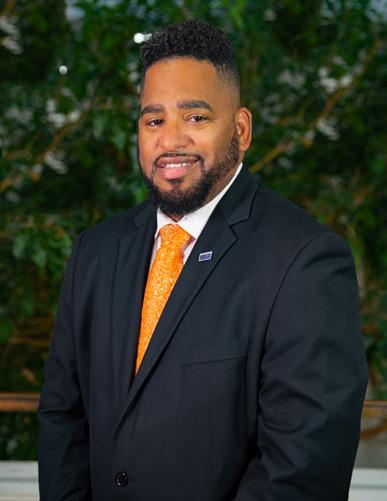
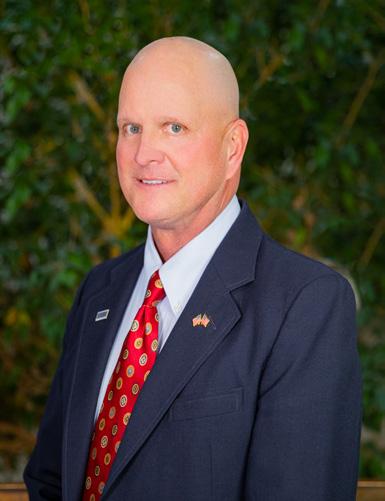
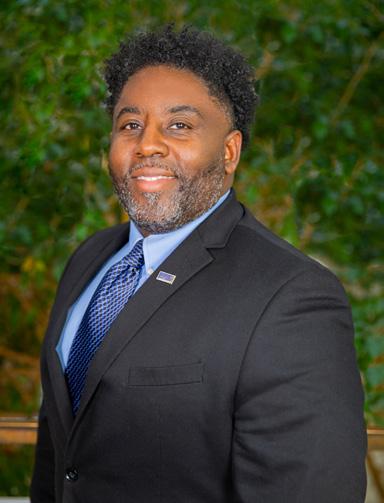
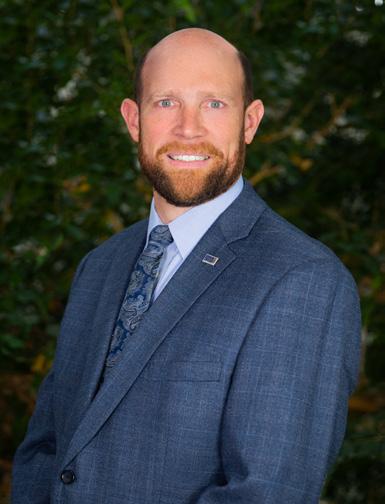
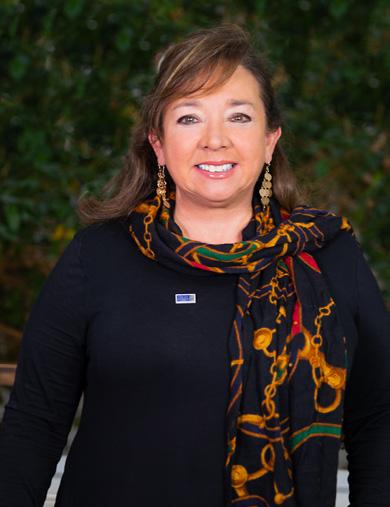
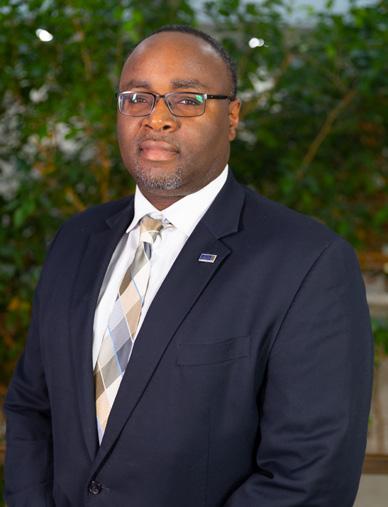
WARD 1 WARD 2
WARD 3 WARD 4
WARD 5 WARD 6
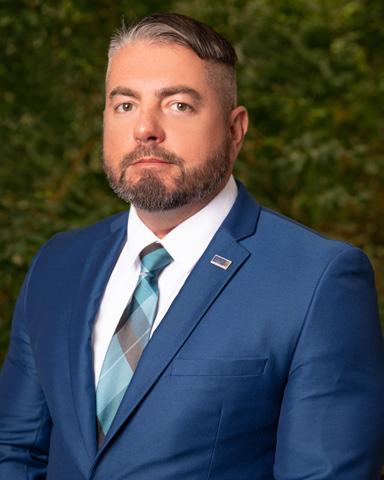

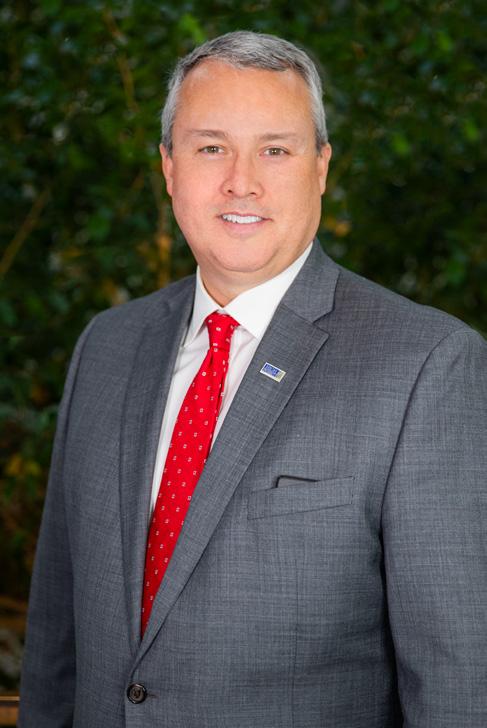
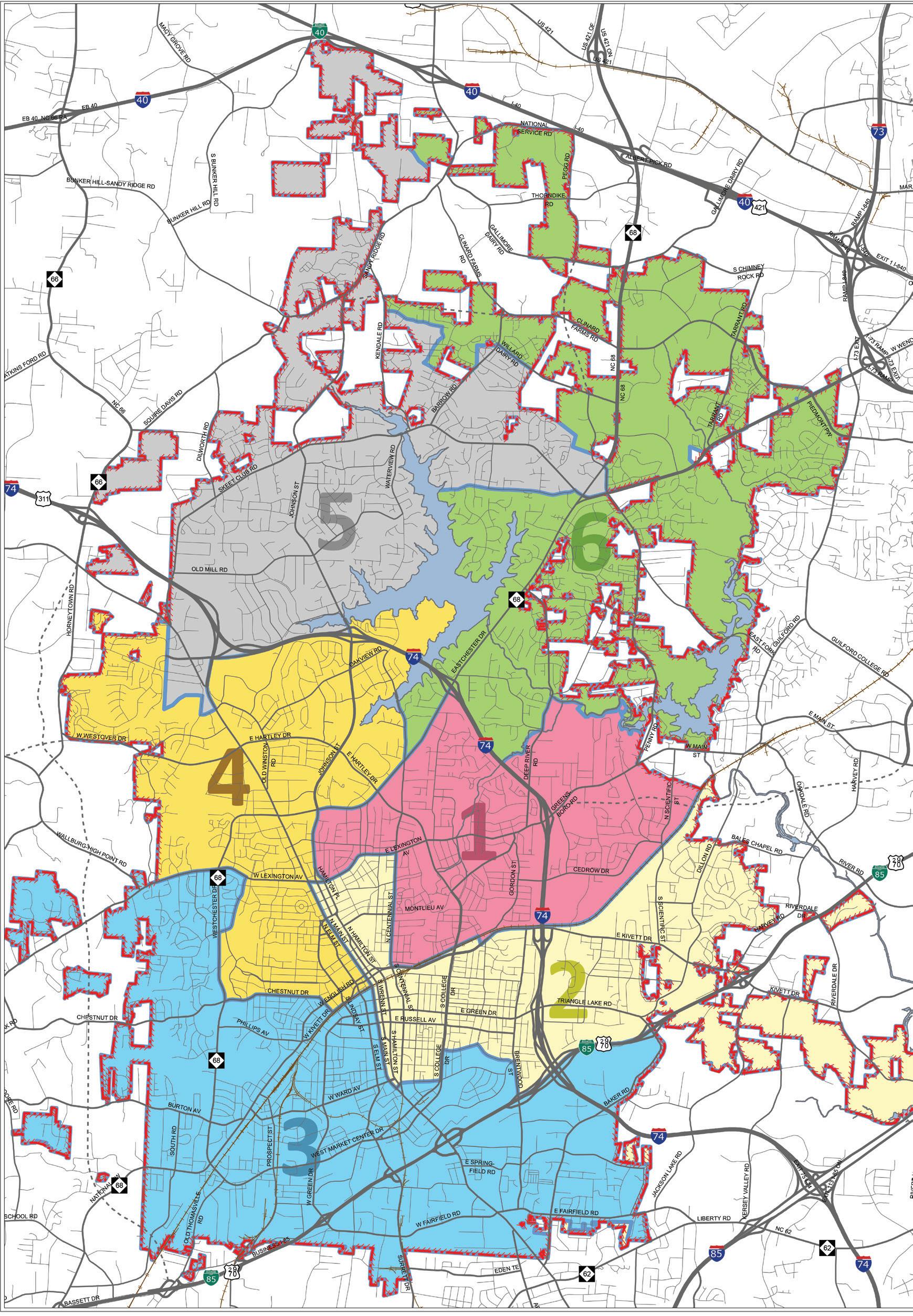 Cyril Jefferson Chris Williams
Monica Peters Wesley Hudson Mayor Pro Tem
Victor Jones Michael Holmes
Britt Moore Tyrone Johnson
Jay W. Wagner Mayor
Cyril Jefferson Chris Williams
Monica Peters Wesley Hudson Mayor Pro Tem
Victor Jones Michael Holmes
Britt Moore Tyrone Johnson
Jay W. Wagner Mayor
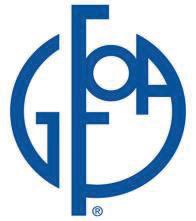
PRESENTED TO
For the Fiscal Year Beginning July 01, 2022
Executive Director

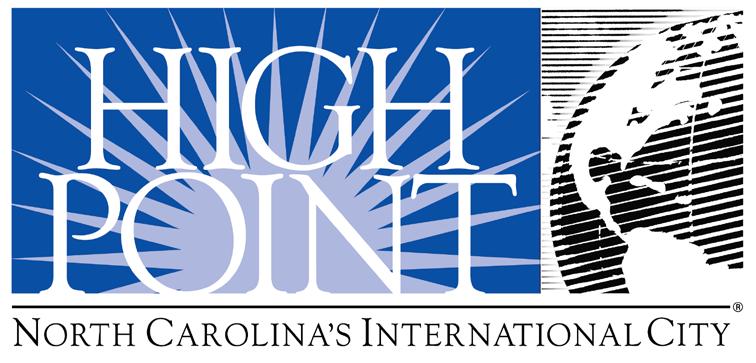
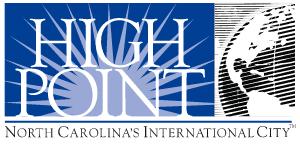


May 1, 2023
Honorable Mayor and Members of the City Council City of High Point, North Carolina

In accordance with the General Statutes of North Carolina, I am pleased to submit for your consideration the Manager’s Recommended Fiscal Year 2023-24 Budget. The budget is balanced and was prepared in accordance with the provisions of the North Carolina General Statutes and the policies of the North Carolina Local Government Commission. It incorporates the priorities and policy direction communicated by the Mayor and City Council and reflects the City Council’s commitment to responsible fiscal management, while continuing to provide services that improve the quality of life for the citizens of High Point. The proposed budget keeps the property tax rate at 61.75 cents per $100 of property value, which is based on a total valuation of $13,511,662,146. The property tax rate is allocated to the General Fund (58.35 cents) and the Debt Service Fund (3.4 cents).
The current year has seen High Point adapt to the realities of providing service in the immediate aftermath of the COVID-19 pandemic. Costs have increased, in some instances dramatically, for providing the same level of service due to inflation and supply chain issues. The effects of the Great Resignation continue, as recruitment and retention remain a concern, and higher than normal vacancy levels persist.
Fortunately, economic conditions have continued their upward path, and the proposed budget as presented for FY 2023-24 is able to absorb the higher costs for service delivery and employee salaries and benefits with growth in our existing general-purpose revenues. While hopeful the upward growth trajectory will continue, the current budget also does not include any increase to the property tax rate allocated for debt service. As part of their debt modeling for financing upcoming governmental bond issuances and major projects, Davenport & Company, LLC presented a funding scenario that included a 4-cent increase for the debt service on future capital needs. These additional capital needs include improvements to the stadium, renovations at 300 Oak, downtown parking improvements, and the construction of a new City Hall. Additional information on our debt financing can be found on page MM-17 of this budget message.
The proposed budget recognizes and addresses the many challenges we face. We expect these challenges to remain throughout FY 2023-24. However, while addressing the current challenges, the budget also balances our existing needs while looking to the future and identifying and prioritizing where new investment is needed.
Below are highlights of the proposed budget:
- No increase in property tax rate
- No increase to electric rates
- Solid Waste availability fee increase of $1 for single-family and multi-family solid waste collection users
- Stormwater fee increase of $1 per Equivalent Residential Unit (ERU)
- 4% water/sewer rate increase
- Average 3% mid-year merit adjustment
- Transition of health plan to selfinsured and creation of a full service employee health clinic
- City match of 3% for 401K/457 contributions (of at least 1%)
- The addition of 3 full-time positions and 6 reclassifications of existing positions
- $4.7 million for new and scheduled vehicle and other rolling stock replacements
- $250,000 allocation for marketing/branding efforts
On March 11, 2021, the American Rescue Plan Act was signed into law. Included in this bill is direct financial assistance to local governments that have faced revenue losses and added safety expenses in dealing with the COVID-19 pandemic. The bill included over $1.3 billion dollars for cities and towns in North Carolina. High Point received $22,699,511 million in direct assistance.

In the fall of 2021, two community input sessions were held, with the following themes emerging as priority areas for funding: employment, housing, education, infrastructure, and community programs/non-profits.
Thus far, the city has committed $16,852,085 for the following projects:
Staff will continue to work with the community and the Mayor and City Council on identifying the projects for the remaining funds
In addition to the allocation of American Rescue Plan Act (ARPA) funds, the City has been fortunate to receive federal grant funding for several new projects that align with City Council’s strategic goals.
The purchase by the City of the 300 Oak Street building represents a significant opportunity for the city to impact the economic progress of the surrounding community. Envisioned as an activated small business and entrepreneurial hub, the building will provide support and resources for new and growing businesses, especially those anchored in the area. At more than 62,000 square feet, the project could include several distinct program areas and may be opened in phases based on city priorities, funding availability, and physical limitations. With an overarching vision of economic advancement for the community, several economic development and community engagement activities have been identified as possibilities for the space including a business incubator, coworking space, and a makerspace. The City received a $4.0 million federal grant and has committed an additional $6.0 million to the project, which includes $3.0 million to purchase the building.
In addition to the 300 Oak project, the City has convened a group of stakeholders made up of staff from city, county, regional, community college, and local non-profit representatives that are collaborating on ways to create a commercial shared-use kitchen in High Point. The mission of the group is to support diverse entrepreneurs to start, grow, and sustain successful food businesses. The vision is to establish a commercial shared-use kitchen, providing equitable access to food business resources that build economic resiliency, strengthen capacity, and create connections. Site selection is currently under way for the kitchen. The City received a $2.0 million federal grant and has committed an additional $2.4 million to the project.
Lastly, federal funding has been awarded for a day center for the homeless. The proposed center would provide emergency shelter and transitional housing, as well as opportunities for individuals to access services, learn basic skills, and regain their ability to live independently. There would be an emergency/short-term bed service as well as a long-term supportive care program. This facility would serve as the homeless services center for High Point and facilitate service delivery in one location with partner agencies. The City received a $3.0 million federal grant and has committed an additional $2.0 million to the project.

Funds included in the budget are adequate to continue providing the services that are expected by our citizens.
The total FY 2023-24 budgeted expenditures for the City of High Point amount to $478,537,587. This is an increase of $14,224,261 or 3.1% from the FY 2022-23 budget.

Below is a chart of total 2023-24 budgeted revenues and expenditures compared to the 202223 Adopted Budget:
The proposed FY 2023-24 property tax rate remains at 61.75 cents per $100 of valuation. The general fund allocation of the property tax remains at 58.35 cents and the debt service fund allocation remains at 3.4 cents.
There is no rate increase to electric fees but there are several proposed changes to fees in the proposed budget.
• A water/sewer rate increase of 4%. The increased rates will help fund increases in operating costs, including fuel and chemicals, as well as the infrastructure needs of the aging system.
• The proposed budget includes increased fees in Customer Service for after-hour service fees, extra trip fees, and electric services disconnected at the pole. These fee increases will help offset the cost of staff and transportation for these service calls. There is also a proposed increase to the meter tampering/investigation charge, in an effort to discourage customers from tampering with their meters and increasing customer safety.
• A stormwater fee increase of $1 per Equivalent Residential Unit (ERU). This fee is charged monthly, and the increase will assist in funding growing costs, the increased use of outside contractors to perform projects, and several large stormwater improvement projects currently under development.
• Due to the expansion of residential units in the City of High Point creating more accounts, more miles on the equipment, higher fuel costs, and more trips to the landfill due to increased solid waste, an increase of $1 per month to the solid waste availability fee is proposed. This fee is applicable to all customers who receive solid waste collection services – both single and multi-family homes.

Additionally, there are proposed fee increases to the rental of a Red Box (4x8x14 feet) for major clean-up projects and for garbage roll-out containers (for new residents) and recycling and yard waste carts. The cost to acquire these carts has increased and the higher fee will allow for continued cost recovery for the Solid Waste Division.
• The proposed budget also includes increased cemetery fees for Public Services. The cost to perform grave openings and closings has increased and the increased fee will assist in recovering this cost. Additionally, a range of costs for cremation urns is proposed, based on size, instead of the existing flat cost no matter the size of the urn.
• Lastly, the proposed budget includes increases in parking rates at our city parking decks. While the hourly rate remains at $1.00, the daily maximum is increased to $10.00. In addition, the flat cost for monthly parking (currently $35/month) is increased based on the number of spaces rented.
The current fiscal year has included several expenditure challenges that have continued from last year, including rising costs due to inflation and the recruitment and retention of city employees.

Recruitment and retention of employees continues to be a challenge in this current economic environment. Influential factors include competition from the private sector and other public entities, accelerating retirement rates, and a shortage of qualified applicants. Reliance on more expensive options has included the use of contractors to provide services and increased overtime costs. While it will take time to return to some level of normalcy with vacancy rates closer to the five-year average of 5-6% prior to the pandemic, the city continues to explore creative ways to recruit and retain employees.
Human Resources staff, working with outside partners, perform a compensation and classification review of one-third of city positions each year. This past year saw significant adjustments, specifically for the Police Department, that were able to be absorbed into the current budget. In addition, due to market forces, a mid-year adjustment was implemented to address salaries for Fire Department personnel as the next phase of the pay study is currently underway. Funding is in place to continue systematic reviews of our pay structure as remaining competitive is critical for the city to maintain quality service delivery.
We expect this trend to continue, as our benchmark local governments are updating their salaries as well on an annual basis. We will continue to assess where our pay plan stands in comparison, while also exploring other benefits that can help us remain competitive in the marketplace. As the volatility of the market continues, new strategies could emerge during the year that may need to be evaluated.
Inflation has remained a growing issue not only for our citizens, but our departmental budgets as well. We have been fortunate to re-prioritize needs without impacting on the services we provide, but the cost of doing business continues to increase, and that is reflected in this proposed budget.
The needs, priorities, and details of each fund are highlighted in detail throughout this document. Below are the major expenditure recommendations included in the FY 2023-24 Proposed Budget:
• Fully funds the City’s Pay for Performance Program. An average 3% mid-year merit adjustment is programmed, at an estimated cost, including benefits, of $1.97 million.
• Increases pay plan ranges by 3% to maintain pace with market trends.
• Continued funding of the increased employer contribution to the Local Government Employees’ Retirement System (LGERS) for regular, fire, and sworn police employees. The cost of this increase for FY 2023-24 is about $1.28 million
• Transition to a self-insured health plan and creation of a full-service employee health clinic. The City has built up a reserve in the health fund over the past several years. Due to the availbility and amount of reserves, the new fiscal year will see the city transition to self-insured for the insurance reserve fund. This transition will also allow the addition of an employee health clinic that will expand services offered at the health and wellness clinic for employees. The intended purpose would be to continue to lower healthcare costs and maximize employees’ health.
• Creation of a six-week paid parental leave/family caregiver leave policy effective in the new fiscal year. This benefit will have no direct budget impact.
• Outside agency funding reflects the value of one-third of a cent on the property tax rate, to a total proposed amount of $446,401
• Funding for marketing/branding efforts totaling $250,000.
• Funding for Forward High Point downtown development group of $250,000.

• Furniture Market Authority funding of $240,000
• Funding for the repayment of the twenty-year internal loan for the Catalyst Project land purchases. The amount is $443,323.
• Funding for the repayment of the fifteen-year internal loan for the improvements to City Lake Park. The amount is $600,000.
• Incremental tax revenue payment for the Catalyst project of $1,652,294. The taxable value of this area has increased $267,577,969 from its 2017 assessed value.
• Investments in the City’s Information Technology network including updated software, maintenance of existing systems and applications, and upgraded infrastructure, totaling $941,000
• Replaces $4.7 million in vehicles funded with pay-go funding from the Fleet division of the Central Services Fund. Planned fleet purchases include one (1) tandem dump truck, five (5) police vehicles, two (2) fire SUV’s, three (3) automated refuse trucks,
two (2) small rear packing refuse trucks, small SUV’s, light duty pickup trucks, body equipped work trucks, a bucket truck, two 15-passenger vans, an underground utilities vehicle, a Jet/Vac truck, a paving patching truck, and other necessary rolling stock.
In addition, the proposed budget funds the fire apparatus replacement program, budgeting for the replacement of an engine ($920,000), for the Fire Department.
• The addition of three full-time positions, highlighted below:
In addition to the above recommended position additions, the proposed budget includes 6 position reclassifications within the General Fund. Existing full-time and part-time positions are utilized to minimize the fiscal impact of these reclassifications.
GENERAL FUND
The 2023-24 General Fund Budget of $142,113,256 is $9,284,187, or 7.0% more than the adopted 2022-23 budget of $132,829,069. The FY 2023-24 General Fund Budget is balanced with current revenues and does not include an increased allocation of the property tax rate, nor an appropriation of fund balance reserves.

General Fund revenues and expenditures are summarized below:
Below is a summary of major General Fund revenue changes:
• Property tax revenues represent 55.3% or $78,601,085 of the total General Fund revenues. Property tax collections are projected to increase approximately $3,500,918, or 4.7%. The projected collections are based on a collection rate of 99.3%.
• Sales tax revenues represent 28.8% or $40,869,580 of General Fund revenues and are projected to increase approximately $4,527,428, or 12.5% due to strong increases in retail sales tax during the current year and projected to continue in FY 2023-24. Sales tax revenue is estimated to increase approximately 4.5% above the year-end estimates. In addition, occupancy tax revenues are increasing $571,000 compared to the FY 2022-23 budget.
• License and permit fees are projected to increase $329,000, or 7.8% due primarily to increased building permit activity.

• Charges for services are increasing by $455,751, or 8.7% due to increases in Parks and Recreation program revenue, including at Blair Park and Oak Hollow golf courses and at Oak Hollow Campground
• Miscellaneous revenue is estimated to increase by $585,100. This is due to stronger investment income projections.

The proposed FY 2023-24 tax rate is 61.75 cents, unchanged from the FY 2022-23 approved rate. The value of one cent in tax rate will produce approximately $1.34 million of revenue. The total proposed tax rate is divided between the General Fund and the General Debt Service Fund. The General Fund allocation remains at 58.35 cents, and the General Debt Service Fund allocation remains at 3.4 cents.
A collection rate of 99.3% is planned for the proposed tax year collections.
The combined total assessed valuation estimates for our four County taxing authorities are $13.511 billion for FY 2023-24, for a 2.2% increase over the estimated current year valuation. Below is a chart of our historic assessed value history:
The sales tax category includes sales tax related to retail sales, utility sales tax, room occupancy tax, and rental vehicle tax. Current year sales taxes are expected to outpace budgeted projections by 8.6% or $3.11 million, and FY 2023-24 sales taxes are projected to increase 12.5%, or $4.52 million from the current fiscal year budget. Below is a chart of our historic sales tax history:


Below is a summary of major General Fund expenditure changes:
• Personnel services are increasing $4,758,127 or 5.2%. This includes increases to fund the following:
o Compensation and classification adjustments approved during FY 2022-23: $1.05 million.
o Average 3% mid-year merit increase: $1.44 million.
o Required increase to the City’s contribution to the Local Government Employees’ Retirement System (LGERS) for regular, certified fire, and sworn police employees: $949,000.
o Increased employer costs for health insurance plan: $379,000
o Higher workers’ compensation expenses to meet higher claim costs: $275,000.
The General Fund budget also includes one additional full-time position, as well as six position reclassifications, as outlined earlier in this message.
• Operating expenditures are increasing $1,845,750 or 7.2%. $571,000 of this is an increase to the contribution to Visit High Point, which is completely offset by the increased budget for occupancy tax revenues. Other drivers include increases to computer and software license fees ($524,000), higher Fleet Services charges for additional vehicle replacements ($510,000), and increased consulting/professional services (389,000), mainly due to inflationary pressures.
• Capital outlay funding is budgeted at $1,480,546 for FY 2023-24. This is driven by maintenance and repairs for Parks and Recreation, Information Technology equipment, and funding for the fire apparatus replacement program.
• Interfund transfers out are increasing by $1,908,088 The general fund contribution for capital projects increased $1,132,575, helping meet growing deferred maintenance and other capital needs of the general fund service areas. The proposed budget also includes a $600,000 reimbursement to the Solid Waste Post-Closure Fund, the first payment for the interfund loan provided for the City Lake Park improvements.
The $66,203,918 Water and Sewer Fund Budget for FY 2023-24 represents a 5.7% or $3,594,682 increase from the 2022-23 adopted budget, as summarized below:

Below is a summary of Water and Sewer revenue changes:
• The proposed budget increases water and sewer rates by 4%. The increased rates will help fund increases in operating costs, including fuel and chemicals, as well as the infrastructure needs of the aging system.
• The proposed budget for water and sewer operations does not include any appropriation of reserves.
The 2023-24 Water and Sewer Fund includes an increase to water and sewer rates of 4%.
Below is a history of water and sewer rate increases:

Water and sewer revenue rates are a critical component of funding the operation, maintenance and needed capital improvements for water treatment facilities and distribution lines, and for wastewater collection lines and treatment systems. Property taxes are not used to finance water and sewer utility services.
Below is a summary of Water and Sewer Fund expenditures:
• Personnel Services is increasing $626,940, or 5.0%, due to an average mid-year merit adjustment of 3% and an increased employer contribution for retirement.
• Operating expenses are increased $1,393,174, or 8.8% due to significant increases in costs for chemicals, funding for testing to meet EPA guidelines, emergency sludge hauling, painting, and other professional services, and maintenance supplies for the aging parts of the system.
• Pay-go capital includes $10,998,250 in funding for water and sewer capital projects.
The 2023-24 Electric Fund Budget of $135,366,700 represents a 3.3%, or $4,672,144 decrease from the 2022-23 adopted budget. The proposed budget includes no changes to electric rates. Currently, our rate consultant is finalizing a rate study for a restructuring of rates on the commercial/industrial side. Once complete, the findings will be presented to the City Council.
The proposed budget includes two additional positions for Electric, a utility locator to assist with the growing number of locates requested each year, and a power line technician to aid with the continuing growth of energy infrastructure.

Wholesale power cost for FY 2023-24 is budgeted at $90.0 million, which is the single largest expense in the Electric Fund and citywide budget.
The budget plan continues to invest funds to maintain electric infrastructure and includes $9,850,000 in major capital projects. These routine capital investments are necessary to maintain efficient and ongoing operation of the Electric System.

Capital investments and reinvestments are critical elements in the City’s total financial program. Capital improvements are financed by one of several methods.
The first method involves the issuance of voter approved general obligation bonds generally backed and paid by property taxes. The second method is a slight variation of the first and allows the City to issue small amounts of what are known as two-thirds general obligation bonds from time-to-time that do not require tax increases or voter approval. Limited obligations bonds are a general government debt financing mechanism similar to general obligation bonds; however, limited obligation bonds do not require voter approval to issue the debt. Another method involves revenue bonds, backed and paid by revenues from our water and sewer and our stormwater system. Revenue bonds do not require voter approval. The final method is pay-go capital financing. The pay-go alternative, developed and expanded in the past ten years, allows us to finance needed capital improvements from current revenues, grants, and other funds, thereby avoiding the additional and higher cost associated with the issuance and financing of long-term debt.
Capital investments are necessary for a city to replace existing infrastructure and to invest in new infrastructure. Debt financing of this infrastructure is a sound financial strategy if the borrowing is done in a strategic and conservative manner. Local policies are in place to ensure that borrowing is done responsibly, and oversight of our borrowing practices are in place through the Local Government Commission. The city is well prepared to address replacement of existing infrastructure to meet and provide for future growth and development.
The City has engaged Davenport & Company, LLC of Richmond, Virginia as our financial advisor since 2003. Davenport has assisted the City with general obligation and revenue bond planning and modeling, financial policies, rating agency strategies and interactions, bond issuance, investment analysis, and bond refunding analysis.
This spring, Davenport & Company, LLC were utilized to model potential debt scenarios for both general obligation and revenue bond (Water/Sewer) debt issuances in the near term and present their findings to the Mayor and City Council. This provided the most up-to-date information on our debt capacity and ability to fund future debt service payments.
General obligation bonds are a common type of municipal bond that are secured by the full faith and credit of the tax rate to repay bond holders. This debt instrument was used to fund the 2004 bond authorization and is being used to fund the $50.0 million authorization that was approved by voters in 2019. The authorization is for the following uses:
• Streets and Sidewalks - $22,000,000
• Parks and Recreation - $21,500,000
• Housing - $6,500,000
The first tranche of bonds was issued in FY 2021-22. Issuances of $12,000,000 for Transportation (FY 2023-24) and $12,000,000 for Parks and Recreation (FY 2025-26) remain. The debt service fund has the capacity for the payments on these issuances with no change to the current property tax allocated for debt service (3.4 cents).
Two-thirds bonds are State authorized General Obligation bonds that may be issued without voter approval. The statute allows a local government to issue up to 2/3 of the amount of GO bonds that were paid off in the previous year. These bonds can be used for any other general obligation purpose other than the financing of auditoriums, coliseums, arenas, stadiums, civic centers or convention centers, art galleries, museums, historic properties, public transportation systems, cable television systems, or redevelopment projects.

There are planned two-thirds bond issuances of $5,425,000 for Transportation (FY 2023-24) and of $5,550,000 for Parks and Recreation (FY 2025-26). In addition to the upcoming general obligation bond issuance, the debt service fund has the capacity for the payments on these issuances with no change to the current property tax allocated for debt service (3.4 cents).
Limited obligations bonds are a general government debt financing mechanism similar to general obligation bonds; however, limited obligation bonds do not require voter approval to issue the debt. An asset is pledged as collateral to secure the financing. Recent projects that utilized LOBS as a funding strategy include the downtown stadium and the new Police Headquarters.
Several projects included in the debt modeling, totaling approximately $84,500,000, could utilize this funding strategy. The projects include stadium improvements, 300 Oak Street, a new City Hall, and downtown parking improvements. The debt modeling included several tax rate increase scenarios to fund the debt service on these projects.
The current budget does not include any increase to the property tax rate allocated for debt service. Staff will continue to work with Davenport & Company, LLC on the future debt modeling, recasting the model when new information is available. The city will also continue to assess our debt capacity, and explore new sources of revenue, to ensure sound long-term fiscal management while making investments that further support growth in High Point.
Revenue bonds are municipal bonds that finance income-producing projects that are secured by a specified revenue source, such as water and sewer or stormwater rates. Revenue bonds are issued by the government agency for operations that run in the manner of a business, with operating revenues and expenses, such as our Water & Sewer Fund. The pledge to repay the bond is guaranteed by the rates of the Water & Sewer Fund.
Over the next five years, staff has identified an estimated $170.2 million in additional major water and wastewater bond projects. The capital improvement plan anticipates cash funding of $65.0 million and debt funding of $105.2 million in water and sewer projects.
The debt plan modeled by Davenport & Company for future revenue bond issuances for the Water & Sewer Fund assumes rate increases in the 4-6% range. As with governmental debt, staff will continue to work with Davenport & Company, LLC on future debt modeling for enterprise funds, recasting the model when new information is available. Capital project costs have increased significantly over the past year and these increases, along with the potential for additional federal and state regulations on emerging compounds like PFAS, will have an impact on the future debt capacity for Water & Sewer.

The City’s capacity to finance and pay for needed improvements is evaluated from time to time by the following rating agencies: Moody’s Investment Services, Standard & Poor’s, and Fitch Ratings. Protecting and enhancing our bond ratings is one of our highest priorities.
The City has seen a series of bond rating upgrades since 2003, including the addition of a AAA bond rating assignment by Standard & Poor’s. The City’s bond ratings were re-affirmed in conjunction with our bond sale in April 2022.
The City has made a commitment to fund a healthy level of pay-go financing for routine improvements, infrastructure maintenance, and grant matches of capital projects funded from state and federal grant programs. Below is a summary of pay-go projects in each fund.
The proposed budget includes $5,689,595 in general pay-go projects.
*The ERP Upgrade includes funding from the General Fund ($375,000), Water/Sewer ($375,000), Electric ($600,000), Solid Waste ($105,000), and Stormwater ($45,000).
**The Local Match for NCDOT Projects includes funding from the General Fund ($113,060) and Federal Grants ($792,000).

***The CMAQ – Traffic Signal Timing Project includes funding from the General Fund ($196,515) and Federal Grants ($1,218,020).

Water and Sewer pay-go capital reinvestments are budgeted at $10,998,250. A list of 202324 Water and Sewer pay-go investments are shown below:
The Electric pay-go projects are budgeted at $9,850,000. Projects include:

The Solid Waste pay-go budget is $1,021,000. The projects planned are:
The $7,871,763 in other FY 2023-24 pay-go investments includes the scheduled replacement of vehicles, normal computer and radio replacements, routine stormwater projects, and others outlined below:
In addition to the above pay-go projects, the capital improvement plan includes $5,000,000 in federal grant revenue for the W. Green Drive Stormwater Improvement Project. The project will be an innovative redevelopment of a key city arterial in a distressed part of town that has been facing long-standing issues for decades with decayed infrastructure, flooding, and nonpoint source watershed pollution.
Fund balances and retained earnings are critical, but often misunderstood and an overlooked part of the Annual Budget. Fund balances and retained earnings consist of unencumbered and unappropriated monies. They are essential for maintaining our strong bond ratings as well as maintaining positive year-round and year-to-year cash flows. Strong fund balances are essential as we plan for subsequent budgets.
The North Carolina Local Government Commission recommends maintaining a minimum of 8.0% balance in each fund. This is necessary for maintaining positive year-round cash flows, reducing the need for short term borrowing, and assisting in maintaining investment grade bond rating. The High Point City Council adopted Fiscal Policy calls for a minimum 10.0% fund balance of estimated expenditures as a signal of financial strength and fiscal stability. The City of High Point applies the policy to all operating funds except the WaterSewer Fund, which calls for a 50% fund balance, and the Economic Development, General Debt, and General Capital Project funds, which are covered by more specific strategic plans.

In March of 2016, the City Council developed a strategic plan, which has been reaffirmed and expanded by the current City Council. The strategic plan has guided the last several budgets, although the fiscal realities during the pandemic have limited the amount of funding we could devote to these activities. The initial goals are below:
• Increase the population of active, engaged, and entrepreneurial and working young professionals living in High Point by 25%
• 100% proactive enforcement of codes
• Create a downtown catalyst project that produces:
o 500 private sector jobs
o 15-20 new restaurants and shops
o 250 additional housing units
o A centralized gathering place
The City Council met in February 2020 and added three new short-term goals:
• Design a marketing campaign focused on diverse groups, events, and quality of life
• Select target neighborhood and coordinate necessary city departments to implement holistic strategy
• Recruit 50 new office jobs and 5 new investors for catalyst project
This past November, the Mayor, City Council, and senior staff held a strategic planning retreat, facilitated by Fountainworks. The objectives of the retreat were to revisit strategic plan priorities, reflect on the recent successes of High Point, revise existing goals to accommodate community changes, and develop a plan for implementing priorities. Out of this retreat came an updated framework of long-term and short-term goals, as shown below:
● Downtown Catalyst Project
○ Complete Streets & Walkability
○ Stadium renovations
○ Parking
○ Streamline business activation process
○ Implementation of Raise Grant
● Southwest/Small-Scale Manufacturing Corridor Plan
○ Develop 300 Oak vision
○ Revisit & align existing plans/strategies
○ Phase 1 greenway design
○ Benchmark industrial revitalization in other cities
● Reduce (Residential) Blight
○ Pick a neighborhood and develop implementation plan
○ Involve Tree Initiative
● Raise High Point’s Profile as a World Arts & Design Capital

○ Adopt a public art policy
○ Make Arts & Design a focus of our downtown aesthetic
○ Enhance capacity to host Arts & Design events
○ Explore Arts District
○ Explore creation of an Arts & Design Museum
● Increase Quality and Quantity of Housing
○ Dirt moving behind left field
○ Zoning policies for mixed use & density
○ Follow EDC model/mindset
○ Housing policies/receivership (Make local friendly)
The past few years have been challenging for our citizens and the organization, but they have been patient, adapted, and shown great resiliency as we’ve transitioned to a post-pandemic world
I want to acknowledge all the staff members who assist in the preparation of this policy document. The efforts and professionalism of Deputy City Manager Greg Ferguson, Assistant City Manager Eric Olmedo, Assistant City Manager Damon Dequenne, Managing Director Jeron Hollis, Financial Services Director Bobby Fitzjohn, Budget and Performance Manager Stephen Hawryluk, Budget and Evaluation Analysts Roslyn McNeill and Don Scales, Executive Assistant Amy Meyers, and the rest of our executive team are appreciated.
I also want to thank all the City’s employees who work tirelessly each day to face the challenge individually to act as the most creative version of themselves. Finally, I thank the Mayor and City Council for your leadership and commitment to the City of High Point. As a city, we have to remain diligent to grow our tax base, seek out new sources of revenue, and take deliberate steps to ensure sound fiscal management. The proposed budget funds our existing services, while looking to the future with new investments that further support the growth
and vitality of our city. While it can be a difficult balancing act, when you work from a place of building creative collaborations with the understanding that what we create in High Point changes the world, it's well worth it. The City of High Point will continue to grow and thrive.

Respectfully submitted,
Tasha Logan Ford City ManagerCreating the single most livable, safe, and prosperous community in America
The City will serve as the catalyst for bringing together the community's human, economic, and civic resources for the purpose of creating the single most livable, safe, and prosperous community in America
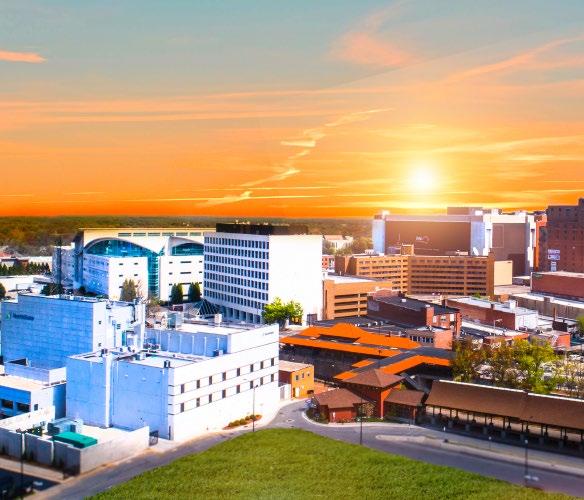
DOWNTOWN CATALYST PROJECT
• Complete Streets & Walkability
• Stadium renovations
• Parking
• Streamline business activation process
• Implementation of Raise Grant
MANUFACTURING CORRIDOR PLAN




• Develop 300 Oak vision
• Revisit & align existing plans/strategies
• Phase 1 greenway design
• Benchmark industrial revitalization in other cities
REDUCE BLIGHT

• Pick a neighborhood & develop implementation plan
• Involve Tree Initiative
WORLD ARTS & DESIGN CAPITAL
• Adopt a public arts policy
• Make Arts & Design a focus of our downtown aesthetic
• Enhance capacity to host Arts & Design events
• Explore Arts District
• Explore creation of an Arts & Design Museum
• Dirt moving behind left field
• Zoning policies for mixed use & density
• Follow EDC model/mindset
• Housing policies/receivership (Make local friendly)
Contained in this document is the City of High Point Fiscal Year 2023-2024 Budget. The budget format was prepared to make it simple and easy to read. We have tried to prepare a document that contains the information necessary for the City Council and the citizens of High Point to understand the operations of the City and the resources and costs necessary to carry out its various missions for fiscal year 2023-2024
The book is divided into funds beginning with the General Fund. The City's Five-Year Capital Improvement Program along with a description of each project is found in the Capital Improvement Program section.
The Summaries/Analyses section contains revenue and expense summaries, assumptions, charts, and other data pertinent to the preparation of this budget.
Revenue information is presented first and expense summaries follow.

Additional summaries, charts and graphs, such as the various funds, Revenue and Expense Summaries, are found at the beginning of each fund's section. The Revenue and Expense Summaries provide a consolidated picture of each fund's revenue and expense status.
A glossary of frequently used terms is found in the last section of the document to assist you in understanding the budget.
We hope that this book is presented in a fashion that will aid you in the location of specific information. Your comments and suggestions are greatly appreciated in helping us compile a document that serves your needs.
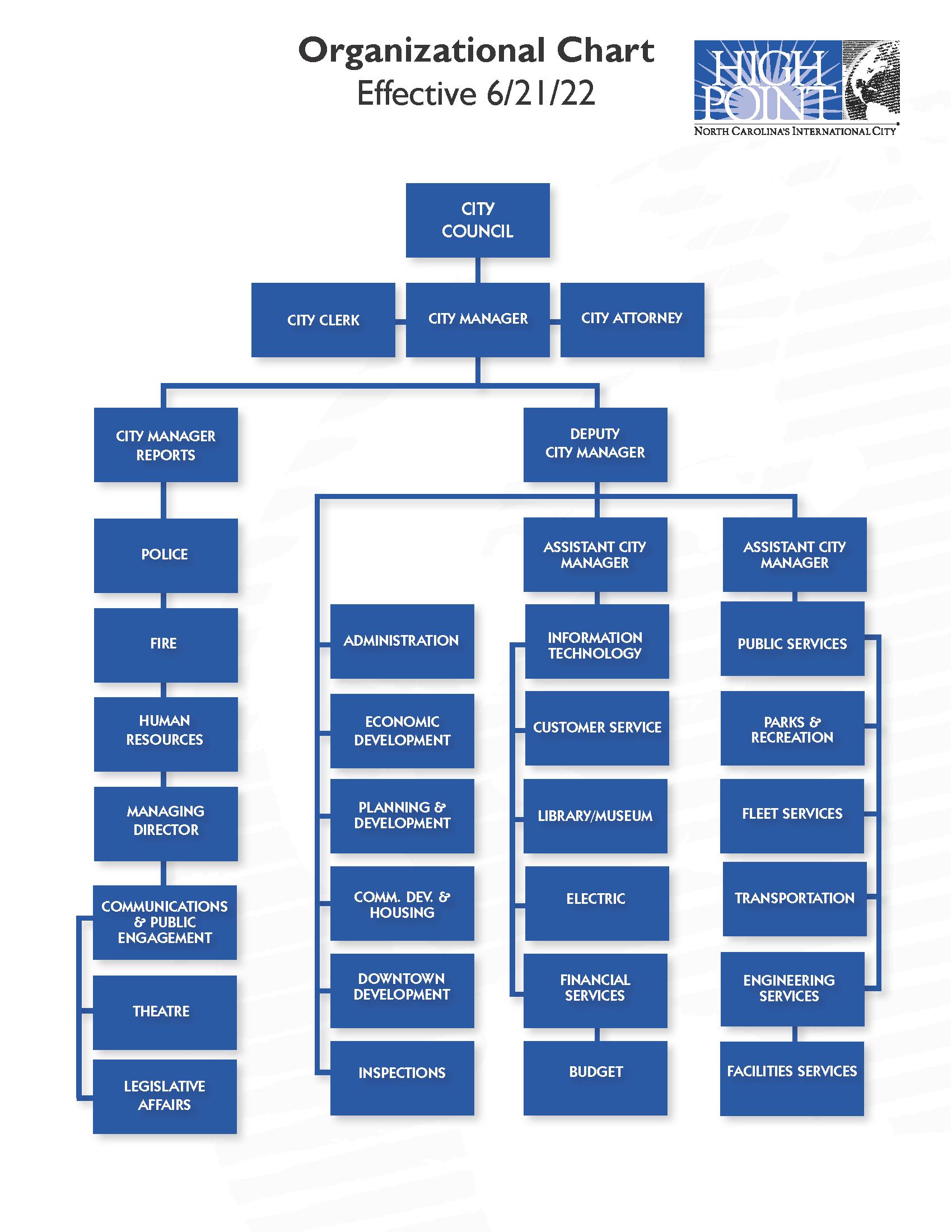

Managers
City Manager
Deputy City Manager
Assistant City Manager
Assistant City Manager
Managing Director
Department Directors
City Attorney
City Clerk
Community Development Director
Customer Service Director
Economic Development Director

Electric Utilities Director
Engineering Services Director
Financial Services Director
Fire Chief
Fleet Services Director
Human Resources Director
Info. Technology Serv. Director
Inspections Services Director
Libraries Director
Parks & Recreation Director
Planning & Development Director
Police Chief
Public Services Director
Theatre Director
Transportation Director
Budget & Evaluation Staff
Tasha Logan Ford
Greg Ferguson
Eric Olmedo
Damon Dequenne
Jeron Hollis
Meghan Maguire (interim)
Sandra Keeney
Thanena Wilson
Jeremy Coble
Sandy Dunbeck
Tyler Berrier
Trevor Spencer
Bobby Fitzjohn
Tommy Reid
Kevin Rogers
Angela Kirkwood
Steven R. Lingerfelt
Reggie Hucks
Mary M. Sizemore
Lee Tillery
Sushil Nepal
Travis Stroud
Robby Stone
David Briggs
Greg Venable
Stephen Hawryluk, Budget & Performance Manager
Roslyn J. McNeill, Budget Analyst
Don Scales, Budget Analyst

High Point is a city centrally located in the Piedmont Triad region of the State of North Carolina and is currently the ninth-largest municipality in North Carolina. Settled before 1750, High Point was incorporated in 1859.
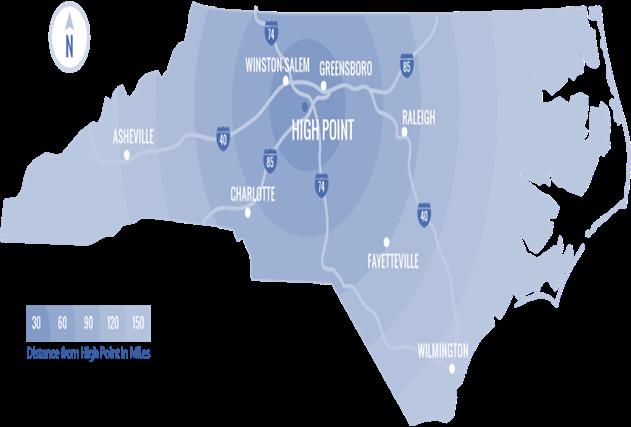

Being a great place to live also means being a great place to work. High Point is a thriving city of 117,279 residents situated along the rolling Piedmont crescent region of North Carolina. High Point lies in four counties, Guilford, Davidson, Forsyth and Randolph. Being centrally positioned along the East Coast with easy access to several interstate highways and the Piedmont Triad International Airport, High Point is a great place to live and to do business.



High Point Public Library: A massive fullservice public library contains nearly 400,000 books, music recordings, videotapes, audiobooks, periodicals, newspapers, and a comprehensive collection of books related to history and genealogy equipped with many attractions for Youth and Young Adults.
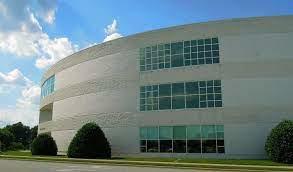
Missions of the High Point Public Library
A globally-connected community, High Point earned its nicknames as North Carolina's International City™ and Home Furnishings Capital of the World™. The first North Carolina furniture exposition was held in High Point in 1905. In 1921, a brand new Southern Furniture Exhibition Building was built with ten stories and 249,000 square feet at a cost of $2 million and the event has grown into an internationally renowned furniture trade fair for all home furnishings. Twice each year, the City hosts the High Point Market, the world's largest home furnishings trade show. High Point Market has a tremendous impact on the economy of the entire Piedmont Triad. All 50 states and more than 110 foreign countries are represented at these markets. High Point continues to be the prime location in the United States to purchase brand-name furniture at a substantial discount.

The furniture industry and developing textile manufacturing set the pace for two 20th century growth booms in High Point.
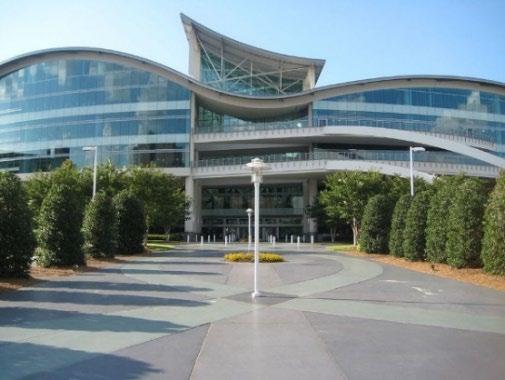
• Nurturing the joy of reading.
• Sharing the power of knowledge.
• Strengthening the sense of community.
• Enhancing cultural and economic vitality.
The High Point Library also hosts the High Point Farmers Market which aligns itself to promote a healthy lifestyle and a sense of community in a family friendly gathering place. Opening and closing dates are subject to change. Admission to the event is free for shoppers, however vendor booth spaces require a minimal fee to cover the costs of event production.
The High Point Museum is a thriving, trusted community center where people come to learn about themselves and our city.
The Museum has two galleries - the Lecture Gallery and the Changing Gallery. It also hosts smaller exhibits in the lobby and on the mezzanine.
Each of the Museum’s permanent exhibits offers insight into High Point, NC’s past where you can explore the images and stories that record the individuals who lived, worshiped, and worked in High Point.
Adjacent to the High Point Museum is the Historical Park which features three historic buildings including the John Haley House (1786), the Hoggatt House (1801) and a working blacksmith shop (1841).
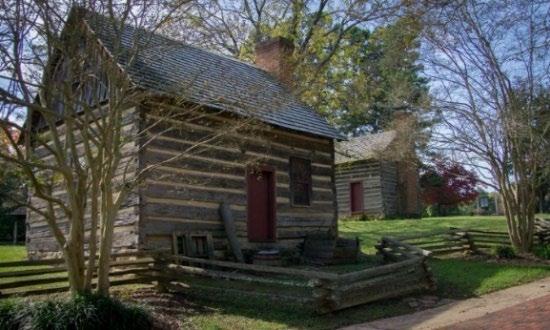


Owned and operated by the City of High Point, the complex represents one of the nation's first cooperative ventures between municipal government, private enterprise, and the arts. In 1975 the International Home Furnishings Center was awarded the Esquire/BCA "Business in the Arts" award in recognition of its cooperation with the City of High Point.
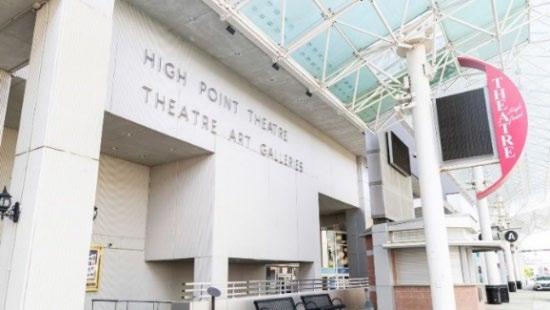
Constructed in 1975, the facility combines contemporary "sculptured" architecture with an interior design dominated by earth tones. The Theatre features an elegant 900 seat auditorium with continental style seating. Other facilities include three large exhibition galleries for meetings, display, or receptions. The center is suited for meeting use, all types of performing arts, and is available to both professional and amateur groups on a rental basis.

Preparation of the City of High Point's fiscal year budget is a process that involves the citizens of High Point, the Mayor and City Council, individual city departments, and the City Manager's budget team.

It is a process that begins in October with preliminary budget meetings and budget software and process training sessions with departments. During the Fall, the Budget and Evaluation Division prepares revenue and expenditure forecasts for the current budget year. The Budget and Evaluation Division distributes operating base budget target numbers and personnel workpapers to departments, and distributes grant request forms to departments and to outside agencies requesting funding.
City management and department directors meet to discuss immediate goals and directives, strategic plan initiatives, and major issues to be emphasized in the upcoming year. The City Manager gives general direction regarding economic conditions and how these conditions should relate to budget proposals.
In October, departments begin preparing their Five-Year Capital Improvement Program. This process requires departments to submit financial information for each project, detailing the description of the project, the projected begin and end dates, as well as how the project will be financed.
In late January, department directors submit the Five-Year Capital Improvement Program (CIP) requests to the Budget and Evaluation Division. Each department ranks their department projects by priority. The Budget and Evaluation Division prepares the CIP recommendations to be included in the proposed CIP plan. The assistant city managers, department directors, and the budget office perform the next review of these requests. At this time, changes that best meet the City’s needs as a whole are incorporated into the departments’ requests. Upon completion of these reviews in February, the program is then presented to the City Manager for review at which time additions or reductions may be made as any new priorities are identified.
Each Fall, the Budget and Evaluation Division meets with department staff and conducts budget software training and outlines expectations for the upcoming budget year. The Budget and Evaluation Division prepares revenue forecasts and operating budget target numbers for the upcoming year. The budgeting software is opened for each department to begin the input of their operating budget requests. The Budget and Evaluation Division distributes personnel workpapers and grant request forms to each department.
At the City Council's discretion, a City Council/Management Team retreat is held early in the calendar year, during which the City Council communicates their concerns and priorities and updates the Strategic Plan for the upcoming year. The City Manager’s staff presents an overview of the current budget year, preview of the year-end financial picture, and major capital projects on the horizon. This important meeting provides valuable insight and feedback from Council members for the management team to use in developing the proposed budget.
Once budget information is input into the budget software, budget review meetings are scheduled as necessary during March with department heads and the Budget and Evaluation Division to study their requests. The City Manager is given a briefing on any new programs that are being proposed, new position requests, as well as major increases in the budget requests. The Budget and Evaluation Division produces the initial recommended budget to be reviewed with the City Manager. The Manager makes any final revisions to the proposed budget along with the proposed tax rate and any utility rate or other fee changes being proposed for the new fiscal year.
In May the City Manager's proposed budget is presented to the Mayor and City Council, the press, and the public. The proposed budget is made available for public inspection in the office of the City Clerk, the Library, and the Budget and Evaluation Division.
During May/June, the City Council holds a series of budget study sessions in which intense study of the budget occurs. During these meetings the City Council reviews the budget and makes any necessary adjustments. North Carolina General Statutes require one public hearing be held for public comment on the proposed budget. This hearing is conducted in May or June, prior to adoption of the budget. The City Council is required by law to formally adopt the budget at a City Council meeting on or prior to June 30.
The adopted budget is also posted on the City of High Point’s website and can be accessed at www.highpointnc.gov.

PLANNING October - January
• Budget team prepares revenue and spending forecasts for current budget year
• Budget Kickoff - January 13, 2023
• Budget team distributes operating base budget target numbers and personnel workpapers to departments
• Operating/Performance Measures training sessions - Jannuary 18 & 19, 2023
• Budget team distributes Grant request forms - Due January 6, 2023

BUDGET REVIEW February - April
• Revenue, Expenditures and Change Requests updated in Questica - Due February 1, 8, & 15, 2023
• Performance Measures for the first six (6) months of the current year - Due February 1, 8 & 15, 2023
• Budget team mails/distributes Outside Agency Grant Application - Due February 17, 2023
• Budget team initial review of departmental requests
• Budget team review with City Manager's Office
• Budget team to distribute Comprehensive Fee Schedule for updating - Due March 20, 2023
CITY COUNCIL REVIEW May
• Proposed budget presentation to City Council - May 1, 2023
• City Council Budget Review
• Budget Work Session - May 10, 18, and 24, 2023
• Budget public hearing - May 15, 2023
ADOPTED BUDGET June
• Adoption of FY 2023-2024 Annual Budget and Related OrdinancesJune 5, 2023 (tentative)
The City of High Point annual budget shall be prepared in accordance with the General Statutes of the state of North Carolina section 159-8(a) that requires an annual balanced budget defined as follows: The budget ordinance is balanced when the sum of estimated net revenues and appropriated fund balances is equal to appropriations.
The City of High Point adheres to state statutes by strictly applying the following policies in the development of its annual operating budget. These policies provide the basis for decision-making and in continuing a tradition of financial stability in High Point’s operation.
1. The City of High Point shall prepare an annual budget appropriation document covering the twelve-month period beginning July 1 and ending June 30 of the following year.

2. Before April 30th of each year, each department head shall present budget requests and revenue estimates for the coming budget year.
3. The proposed budget document shall be presented to the City Council for consideration no later than June 1 with adoption of the approved ordinance by June 30.
4. One public hearing is mandated by North Carolina State General Statutes.
5. The City budget will be developed incorporating all programs and service levels as established by City Council and as required by all statutes.
6. Budgets shall be prepared at the department level and provide the basis for the City’s financial management and operation. The adopted appropriations by fund shall constitute the maximum expenditure authorization for that fund and may be amended only by action of the City Council.
1. Estimation of revenue receipts shall be realistic and attainable both in the determination of fund balance generation in the current fiscal year and in the estimated receipts for the following fiscal year. Where judgment is required, conservatism shall be the rule.
2. Amounts appropriated into fund balance shall not exceed the sum of cash and investments minus the sum of liabilities, encumbrances, and deferred revenues arising from cash receipts at the close of the fiscal year preceding the budget year.
3. Every effort shall be made to maintain a balance of 10% of the City’s estimated expenditures in undesignated fund balance. Appropriations from unappropriated fund balance shall be made only at the direction of the City Council.
4. Water, sewer, stormwater, and electric rates shall be set at an amount that will enable these funds to be self-supporting.
5. The practice of transferring from the Electric Fund to supplement the General Fund was eliminated beginning with the 2000-2001. The Proposed 2023-2024 budget does not include a transfer of electric funds.
6. One-time or special revenues shall not be used to finance ongoing City operations but rather be used for the funding of special projects.
7. An aggressive policy of seeking the collection of delinquent utility and license fee accounts will be maintained.
The goal of the City’s debt policy is to manage debt by maintaining a sound fiscal position and protecting the City’s credit rating. Long-term debt shall only be used to finance those capital projects that cannot be financed with current revenues and will require strong financial administration.

When the City considers debt financing, analyses of the financial impact of short-term and long-term issuing of the debt is considered. Issuing long-term debt commits the City’s revenues several years into the future, and may limit its flexibility to respond to changing service priorities, revenue inflows, or cost structures. For this reason, it must be determined that future citizens will receive benefit from the capital improvement that the debt will finance.
Bonds may be sold as authorized or by first issuing bond anticipation notes (BANs) to finance the bond projects. When BANs are issued, such shall be retired by the issuance of the bonds historically within a period of one year.
The payment of debt service shall be developed on a schedule that provides even or level debt payments annually in order to prevent major swings from year to year
1. The issuance of all bonds for the purchase of or construction of major capital projects will be with the approval of the North Carolina Local Government Commission

2. In adherence to North Carolina General Statute 159-7, funds shall be appropriated to cover debt service before any other appropriation is authorized.
3. The legal debt margin of 8% of assessed valuation shall be maintained.
1. The City shall prepare a Five-Year Capital Improvement Program (CIP) in conjunction with the annual operating budget. The first year of this program shall be presented for adoption. The subsequent four years shall be for information and planning purposes.
2. Capital expenditures included in the CIP are attributable to a specific fund (General, Water, Sewer, Electric, etc.) and will be financed from revenues assigned to that fund. Projects included in the CIP shall have a cost greater than $15,000 and a useful life of at least ten years.
3. Capital acquisitions costing not less than $5,000 and having a useful life of at least three years and which do not materially add to the value of existing assets shall be budgeted for in the operating budget of the department to which the asset is to be assigned. These acquisitions shall not represent major acquisitions that are budgeted for in the CIP. Vehicles for the City’s fleet are not budgeted for in the CIP. First-year acquisition of vehicles is budgeted in the using department; subsequent replacement vehicles are managed through the City’s Fleet Replacement Program.
4. Capital Project Ordinances (CPO) shall be established and adopted by the City Council separate from the regular operating budget ordinance and shall authorize the construction or acquisition of major capital that spans a period of time greater than one year to complete. The appropriation of the capital project ordinance budget shall remain in effect for the life of the project and not require reappropriation each fiscal year.
5. The expenditure of all bond-authorized projects will be controlled through the establishment of capital project ordinances.
North Carolina General Statute 159-8 states that each local government shall operate under an annual balanced budget ordinance.

The budget ordinance as adopted by the City Council may be amended in two ways:
(1) Budget transfers within a fund authorized by the City Manager, or
(2) Appropriation increases or decreases authorized by the City Council including transfers, contributions, and reimbursements among funds.
The first procedure authorized by the budget ordinance states that the City Manager is authorized to approve transfers of appropriations within a given fund. Conversely, transfers cannot occur between funds without authorization from the City Council.
In order to initiate a transfer of budgeted funds from one line item to another within the same fund, the department requesting the transfer must complete a “City of High Point Budget Transfer Request” form indicating the budget account number to transfer from, the budget account number to transfer to, and the amount to be transferred. An adequate
explanation of the need for the transfer must accompany the request.
The completed form must be signed by the department head and submitted to the Budget and Evaluation Division. Upon receipt, the Budget and Evaluation Division reviews the form for completeness and accuracy, verifies that the requested transfer amount is available for transfer, and determines if the request is valid.
Upon signature authorization and approval by the Budget and Performance Manager or appropriate designee, the request is entered into the general ledger system to process the budget transfer. Budget transfers result in no increase or decrease in the fund’s budget.
One exception to the City Manager’s authority to transfer budget within a fund is that of contingency transfers. The City Manager is required to communicate to City Council any transfers by his/her authority out of a fund’s contingency account into any other budget for expenditure.
The need for any budget ordinance amendment that results in either increases or decreases in a fund’s total budget or which involves transfers of budget between funds requires City Council formal authorization and approval.
For example, if revenue is made available during the fiscal year that was not included in the original adopted budget ordinance, the City Council may elect to appropriate this revenue and budget a corresponding amount of expense for a stated purpose.

In addition, the City Council may elect to transfer, contribute, or reimburse one fund from another fund for a stated purpose.
In any of these instances an increase in the fund’s budget is the result.
To implement this, the Budget and Evaluation Division prepares a Budget Ordinance Amendment which states the revenue and expense accounts involved, the amount of the amendment, and the purpose of the amendment. This Appropriation Ordinance is then presented to the City Council for deliberation and approval. When approved, the Budget and Evaluation Division files the ordinance with the City Clerk and prepares the appropriate budget transfer request forms and processes them as outlined in the section above.
The accounting policies of the City of High Point shall conform to the generally accepted accounting principles as applicable to governments.

The diverse nature of governmental operations and the requirements of assuring legal compliance preclude recording all governmental financial transactions and balances in a single accounting entity. Therefore, from an accounting and financial management perspective, a governmental unit is a combination of several distinctly different fiscal and accounting entities, each having a separate set of accounts and functioning independently of each other.
The basis of accounting refers to the point at which revenues or expenditures are recognized in the accounts and reported in the financial statements. It relates to the timing of the measurements made regardless of the measurement focus applied. As in the basis of budgeting, accounting records for the City of High Point governmental funds are maintained on a modified accrual basis with the revenues being recorded when available and measurable and expenditures being recorded when the services or goods are received and the liabilities are incurred. In contrast to the basis of budgeting, accounting records for proprietary funds are maintained on the accrual basis in which revenues are recognized when earned and expenses are recognized when incurred.
The City of High Point’s accounting system is organized and operated on a fund basis. Each accounting entity is accounted for in a separate fund, which is defined as a fiscal accounting entity with a self-balancing set of accounts recording cash and other financial resources together with related liabilities and residual equities or balances, and changes therein. Two fund types defined in the “Description of Budgeted Funds” are further defined below as well as the addition of Fiduciary Funds.
Classification Fund Type
Governmental Funds
General
Special Revenue
Debt Service
Capital Projects
Proprietary Funds
Fiduciary Funds
Enterprise
Internal Service
Agency
Expendable Trust
Governmental Funds | These funds are, in essence, accounting segregations of financial resources. Expendable assets are assigned to the various governmental funds according to the purposes for which they may or must be used; current liabilities are assigned to the fund from which they are to be paid; and the differences between governmental fund assets and liabilities (the fund equity) is referred to as Fund Balance. The primary measurement focus is “flow of current financial resources.” Increases in spendable resources are reported in the
operating statement as revenues or other financing sources, and decreases are reported as expenditures or other financing uses.
Proprietary Funds | These funds are sometimes referred to as income determination, non-expendable, or commercial-type funds and are used to account for a government's on-going organizations and activities which are similar to those often found in the private sector. All assets, liabilities, equities, revenues, expenses, and transfers relating to the government's business and quasibusiness activities, where net income and capital maintenance are measured, are accounted for through proprietary funds. The generally accepted accounting principles here are those applicable to similar businesses in the private sector, and the measurement focus is the economic condition of the fund as a result of the events and transactions of the period. Events and transactions that improve the economic position of a proprietary fund are reported as revenues or gains in the operating statement. Those that diminish the economic position are reported as expenses or losses.
Fiduciary Funds | These funds account for assets held by the City in a trustee capacity or as an agent for other governmental units and for other funds. Each trust fund is accounted for as either a governmental or a proprietary fund.
Fiduciary funds are not budgeted in the annual budget process.
These represent another accounting entity used to establish control and accountability for the City's general fixed assets and the outstanding principal of its general long-term debt (General Fixed Assets Account Group and General LongTerm Debt Account Group).

These records are accounted for in a selfbalancing group of accounts because the City's General fixed assets -- all fixed assets except those accounted for in Proprietary Funds or Trust Funds -- are not financial resources available for expenditures. The outstanding principal of the general longterm debt and general long-term liabilities not accounted for in the Proprietary Funds or Trust Funds do not require an appropriation or expenditure during the account year.
In developing and maintaining the City's accounting system, consideration is given to the adequacy of internal accounting controls. Internal accounting controls are designed to provide reasonable, but not absolute, assurance regarding the safeguarding of assets against loss from unauthorized use or disposition and the reliability of financial records for preparing financial statements and maintaining accountability for assets.
The concept of reasonable assurance recognizes that the cost of a control should not exceed the benefits likely to be derived, and the evaluation of costs and benefits requires estimates and judgments by management.
All internal control evaluations occur within the above framework. We believe that the City's internal accounting controls adequately safeguard assets and provide reasonable assurance of proper recording of financial transactions.

Because of the major impact that this revenue source could have on the General Fund, and therefore, the tax rate, special comment is warranted on the Electric Fund.
On February 1, 1996, the High Point City Council adopted an Electric Fund Transfer Policy, which restricts the amount of funds which can be transferred to the General Fund from the Electric Fund. The policy provisions are summarized below:

♦ Whereas the City Council desires to preserve the financial integrity of the Electric Fund and to reduce the General Fund’s dependence on Electric Fund transfers…
♦ Whereas if electric services had been provided by an investor-owned utility instead of the city’s Electric Fund, such utility would have paid municipal ad valorem taxes to the General Fund of the City and would have been entitled to a return on investment;
♦ Therefore, be it resolved by the City Council, that the following policy regarding payments in lieu of taxes and operating transfers from the Electric Fund be adopted:
1. The City shall budget annually a payment in lieu of taxes amount from the Electric Fund to the General Fund that approximates the amount of ad valorem taxes that would have been paid had electric services been provided by an investor-owned utility
2. Operating Transfers: The City may budget an operating transfer from the Electric Fund to the General Fund not to exceed 3% of the gross fixed assets of the Electric Fund as reported in the City’s most recent audited financial statements
The transfer to the General Fund was eliminated in fiscal year 2000-2001. The 2023-2024 Proposed Budget does not include a transfer from the Electric Fund. The amount budgeted for payment in Lieu of Taxes from the Electric Fund to the General Fund for fiscal year 20232024 is $978,944.
The City’s budget is developed on a modified accrual basis for all funds, which means that obligations of the City are budgeted as expenditures, but revenues are recognized only when they are measurable and available. Available means that the funds are collectible within sixty days of the fiscal year-end. The Local Government Budget and Fiscal Control Act requires that the budget ordinance be balanced. North Carolina General Statute 159-8(a) states:
Each local government and public authority shall operate under an annual balanced budget ordinance....A budget ordinance is balanced when the sum of estimated net revenues and appropriated fund balance is equal to appropriations.

Appropriations are exclusively limited to cash and cash equivalents less current claims against that cash. The statutory formula is cash and investments minus the sum of liabilities, encumbrances, and deferred revenues arising from cash receipts.
The Annual Budget authorizes and provides the basis for the City's financial management. The adopted appropriations constitute the maximum expenditure authorization during the fiscal year and can only be amended by action of the City Council.
The City's budget is divided into funds. An annual budget is adopted for the General, Special Revenue, Debt Service, General Capital Projects, Enterprise and Central Service Funds. (These are illustrated in the “Budgetary Fund Structure” chart and further defined in the “Description of Budgeted Funds” on the following two pages). Within each fund are the separate departments with various activity budgets. The Annual Budget is adopted at the department level.
Beginning with the budget for fiscal year 2016-2017, a new budget software system was implemented. Questica is a webbased application that uses state-of-the-art technology to provide entities the functions and features necessary to gain visibility into their financials and control their operating budgets. The program ensures the budgeting cycle runs smoother and securely for users. The product also includes a Salary and Position Planning module, a Capital Improvement Planning module, and a Performance Management module.
The implementation of this software has eliminated the need for the Budget and Evaluation Division to push spreadsheets out to departments for budget preparation. Departments enter budget requests directly into the budget system, and have the ability to generate individual reports at the fund, department, and accounting unit levels.
The system will also allow many “what if” scenarios to be tested. All preparation of the budget up to adoption is done in the Questica software. The budget system is solely a system for preparing and balancing the budget. The budget is uploaded into the Lawson Financial System following adoption.
The financial system implemented in fiscal year 2006-2007 by the City of High Point is Infor Lawson Enterprise Resource

Planning (ERP) that provides for excellent fiscal management.
The General Ledger acts as the heart of the financial management system. The General Ledger function interfaces with other Infor Lawson Applications such as Purchasing and Accounts Payable each of which feed into the General Ledger.
The Infor Lawson Financial System budget edits allow for excellent budgetary control at the department or accounting unit level. This functionality checks for available funds before new commitments and encumbrances are released by the system.
General Fund
• General Government
• Public Safety
• Public Services
• Planning & Community Development
• Cultural & Recreation
Internal Service Funds
• Central Service Funds
• Print Shop
• Radio Repair
• Computer Replacement
• Fleet Maintenance
• Insurance Reserve
Economic Development
Special Revenue
• Special Grants
• Community Development
• Market Authority
Debt Service
• General Debt Service
Capital Projects
• General Capital Projects
Enterprise Funds
• Water-Sewer Fund
• Electric Fund
• Mass Transit Fund
• Parking Fund
• Solid Waste Fund
• Stormwater Fund
Legend: Fund Group Level: Gray Fund Level: Blue Below Fund Level: Red
The City’s budget is developed on a modified accrual basis for all funds, which means that obligations of the City are budgeted as expenditures, but revenues are recognized only when they are measurable and available. As in the basis of budgeting, accounting records for the City of High Point governmental funds are maintained on a modified accrual basis with the revenues being recorded when available and measurable and expenditures being recorded when the services or goods are received, and the liabilities are incurred. In contrast to the basis of budgeting, accounting records for proprietary funds are maintained on the accrual basis in which revenues are recognized when earned and expenses are recognized when incurred.

The City of High Point budget consists of two basic fund types: Governmental Funds and Proprietary Funds

The measurement focus of governmental funds is upon determination of financial position and changes in financial position rather than upon net income.
The General Fund is used to account for general government operations of the City, which are financed through taxes or other general revenues, contributions, reimbursements, or transfers from other funds. The General Fund accounts for all financial transactions not required to be accounted for in another fund. The Economic Development Fund is used to account for funds appropriated for investment incentives to aid in attracting investors to the City.
Special Grants is used to account for revenues received from federal, state, and local sources or groups designated for expenditure on particular programs and projects. These programs and projects are usually non-recurring in nature and of short duration.
Community Development is used to account for revenues and expenses derived from the Community Development Block Grant entitlements to the City.
Market Authority is a public-private partnership sponsor of the International Home Furnishings Market and is used to develop strategies and priorities to address and promote improvements for the annual spring and fall markets
The General Debt Service Fund is used to account for the accumulation of resources for and the payment of general long-term debt, principal and interest for bonded indebtedness incurred for the financing of projects associated with General Fund activities. (Debt service for enterprise funds is accounted for in those funds.)
The General Capital Projects Fund is used to account for the acquisition or construction of major capital facilities, equipment, and improvements other than those financed by the enterprise funds.
The measurement focus of proprietary funds is upon determination of operating income, changes in net assets, financial position and cash flows. Use is required for operations for which a fee is charged to external users.
The Central Services Fund is used to provide centralized services such as radio, computer, and fleet services on a cost-reimbursement basis that provides the revenue to support the Central Services Fund.

Insurance Reserve Fund is used to account for revenues and expenses for Health, Dental, Life Insurance, and Worker’s Compensation.
Water-Sewer Fund is an enterprise fund used to account for the provision of water and sewer services to the residents of the City and some county residents. It includes all operating, debt service, and capital improvements associated with providing water and sewer services.
Electric Fund is an enterprise fund used to account for the provision of electric service to the residents of the City. It includes all operating, debt service, and capital improvements associated with providing electric service.
Mass Transit Fund is an enterprise fund used to account for the operation and maintenance of the City’s public transportation system, High Point Transit System.
Parking Fund is an enterprise fund used to account for the operation and maintenance of the City’s various parking facilities. It includes all operating, debt service, and capital improvements for the parking facilities.
Solid Waste Fund is an enterprise fund used to account for the operation and maintenance of the City’s landfill, municipal recycling facility and garbage collection. It includes all operating, debt service, and capital improvements for the landfill and recycling facilities.
Stormwater Fund is an enterprise fund used to account for the operation and maintenance of the stormwater program, which manages stormwater runoff, bank stabilization, and maintenance of retention lakes and ponds. All expenses including debt service and capital improvements for the stormwater operation are included in this fund.
The City of High Point’s Fiscal Policy Guidelines were originally adopted April 3, 2006 and were most recently revised on June 1, 2021. The Guidelines consist of six sections: Objectives, Capital Improvement Budget Policies, Debt Policies, Reserve Policies, Budget Development Policies, and Cash Management and Investment Policies.
This fiscal policy is a statement of the guidelines and goals that will influence and guide the financial management practice of the City of High Point, North Carolina. A fiscal policy that is adopted, adhered to, and regularly reviewed is recognized as the cornerstone of sound financial management. Effective fiscal policy:

• Contributes significantly to the City's ability to insulate itself from fiscal crisis,
• Enhances short-term and long-term financial credit ability by helping to achieve the highest credit and bond ratings possible,
• Promotes long-term financial stability by establishing clear and consistent guidelines,
• Directs attention to the total financial picture of the City rather than single issue areas,
• Promotes the view of linking long-run financial planning with day to day operations, and
• Provides the City Council, citizens and the City’s professional management a framework for measuring the fiscal impact of government services against established fiscal parameters and guidelines.
To these ends, the following fiscal policy statements are presented.
1. The City will prioritize all capital improvements in accordance with an adopted capital improvement program.
2. The City will develop a five-year plan for capital improvements and review and update the plan annually. The City utilizes a weighted ranking system based on five critical factors to recommend projects to the capital improvement program. Additional projects can be added to the CIP without ranking, but funding for projects added in this manner are subjected to normal operating budget constraints.
3. The City will enact an annual capital budget based on the five-year capital improvement plan. Future capital expenditures necessitated by changes in population, changes in real estate development, or changes in economic base will be calculated and included in capital budget projections.
4. The City will coordinate development of the capital improvement budget with development of the operating budget. Future operating costs associated with new capital improvements will be projected and included in operating budget forecasts.
5. The City will use intergovernmental assistance to finance only those capital improvements that are consistent with the capital improvement plan and City priorities, and whose operating and maintenance costs have been included in operating budget forecasts.
6. The City will maintain all its assets at a level adequate to protect the City's capital investment and to minimize future maintenance and replacement costs.
7. The City will project its equipment replacement and maintenance needs for the next several years and will update this projection each year. From this projection, a maintenance and replacement schedule will be developed and followed.
8. The City will identify the estimated costs and potential funding sources for each capital project proposal before it is submitted for approval.
9. The City will attempt to determine the least costly and most flexible financing method for all new projects.
1. The City will confine long-term borrowing to capital improvement or projects that cannot be financed from current revenues except where approved justification is provided.
2. The City will utilize a balanced approach to capital funding utilizing debt financing, draws on capital reserves and/or fund balances in excess of policy targets, and current year (pay-as-you-go) appropriations.
3. When the City finances capital improvements or other projects by issuing bonds, or entering into capital leases, it will repay the debt within a period not to exceed the expected useful life of the project. Target debt ratios will be annually calculated and included in the review of financial trends.
4. Where feasible, the City will explore the usage of special assessment, revenue, or other self-supporting bonds instead of general obligation bonds.
5. The City will retire tax anticipation debt, if any, annually and will retire bond anticipation debt within six months after completion of the project.

1. Net debt as a percentage of total assessed value of taxable property should not exceed 2.5%. Net debt is defined as any and all debt that is taxsupported.
2. The ratio of debt service expenditures as a percent of total governmental fund expenditures should not exceed 15% with an aggregate ten-year principal payout ratio target of 60% or better.
3. The City recognizes the importance of underlying and overlapping debt in analyzing financial condition. The City will regularly analyze total indebtedness including underlying and overlapping debt.
4. The City will target a minimum amount of equity funding of 10% of the capital improvement plan on a five-year rolling average.
1. The City will establish an emergency reserve to pay for needs caused by unforeseen emergencies, including unanticipated expenditures of a nonrecurring nature, or to meet unexpected small increases in service delivery costs. This contingency reserve will be budgeted at not less than 0.5% of the operating funds.
2. Unreserved, Undesignated Fund Balances will mean funds that remain available for appropriation by the City Council after all commitments for future expenditures, required reserves defined by State statutes, and previous Council designations have been calculated. The City will define these remaining amounts as “available fund balances.”
3. Available fund balances at the close of each fiscal year should be at least 10% of the Total Annual Operating Budget of the City.
4. The City Council may, from time-totime, appropriate fund balances that will reduce available fund balances below the 10% policy for the purposes of a declared fiscal emergency or other such global purpose as to protect the long-term fiscal security of the City of High Point. In such circumstances, the Council will adopt a plan to restore the available fund balances to the policy level within 36 months from the date of the

appropriation. If restoration cannot be accomplished within such time period without severe hardship to the City, then the Council will establish a different but appropriate time period.
5. The City has adopted a comprehensive strategy for the longterm stability and financial health of the Combined Water and Sewer Fund that provides for annual increases in fund reserves to an established goal of 50% of the Water and Sewer Fund operating budget.
6. The City Council has adopted a strategy to stabilize retail electric utility rates for the benefit of users of the Electric Utility Operations Fund by creating a Rate Stabilization Reserve. The Reserve was funded by the cumulative disparity between wholesale purchased power rates and the City’s adopted retail rate between FY 2016 and FY 2020 in addition to a working capital credit from NCMPA1. Staff will recommend appropriating a portion of the reserve on an annual basis to mitigate future rate increases.
1. The City will develop the Annual Budget in conjunction with a stated program of performance objectives and measures with which to gauge progress toward meeting those objectives.
2. Water, sewer and electric rates will be established at the appropriate level to enable the related funds to be selfsupporting. In addition, water and sewer rates will be established to maintain compliance with revenue bond covenants.
3. One-time or other special revenues will not be used to finance continuing City operations but instead will be used for funding special projects.
4. The City will develop the Annual Budget in conjunction with a stated program of performance objectives and measures with which to gauge progress toward meeting those objectives.
5. The City will pursue an aggressive policy seeking the collection of delinquent utility, license, permit and other fees due to the City.
1. It is the intent of the City that public funds will be invested to the extent possible to reduce the need for property tax and utility revenues. Funds will be invested with the chief objectives of safety of principal, liquidity, and yield, in that order. All deposits and investments of City funds will be in accordance with N.C.G.S. 159.

2. The Financial Services Director will establish a Cash Management Program that will be conducted in such a manner as to ensure that adequate funds will always be available to meet the City’s financial
obligations and to provide the maximum amount of funds available for investment at all times. The Program shall comprehensively address at a minimum; Accounts Receivable/Billings, Accounts Payable, Receipts, Disbursements, Deposits, Payroll, Special Appropriations and Debt Service Payments.
3. The City will use a Central Depository to maximize the availability and mobility of cash for all funds that can be legally and practically combined
4. All security transactions, including collateral for repurchase agreements, entered into by the city shall be conducted on a delivery-versuspayment (DVP) basis. Securities will be listed in the City’s name if issued only in book entry form or held by a thirdparty custodian and evidenced by safekeeping receipts. Certificated investments will be held by the Financial Services Director in the name of the City.
5. Investments of the City will be diversified to eliminate the risk of loss as a result of over concentration of securities in a specific issuer, class of securities, or maturity sector.

The Summaries/Analysis section contains charts, graphs, summary tables, and discussions of the City's revenues and expenses for fiscal year 20232024 with historical data for comparison purposes.
The Consolidated Summary of Revenues and Expenditures that begins this section is a summary of total revenues and expenses by fund by major revenue and expense category. Following this summary, the section is divided into revenue and expense information, personnel summaries, and outstanding debt information.



Includes General, Special Revenue, Capital Projects, and Debt Service Funds; excludes Other

*Includes Property Taxes, Sales and Use Taxes, and Occupancy Taxes. Except that starting in FY2018, sales and use taxes were captured in the Intergovernmental Revenues category.

**Includes Administrative Reimbursements and Miscellaneous Revenues
Includes General, Special Revenue, Capital Projects, and Debt Service Funds; excludes Other Financing Sources
Source:TheabovestatisticsarefromtheCityofHighPointAnnualComprehensiveFinancialReport
















Fund Balance represents the excess of a fund's assets and revenues over its liabilities, reserves, and expenditures at the close of the fiscal year.
The High Point City Council-adopted Fiscal Policies maintain minimum fund balances at 10% of estimated expenditures as a signal of financial strength and fiscal stability. The City of High Point applies the policy to all operating funds except the Economic Development, General Debt, and General Capital Project funds as they are covered by more specific strategic plans. A summary of fund balances and estimated changes therein are shown below:







Electric Fund










Public Safety Communications Center, Police, Fire, Building Inspections, Local Code Enforcement
Recreation/Culture/ Neighborhoods Parks & Recreation, Library, Theatre, Outside Agencies, Planning & Development, Economic Development, Community Development, Market Authority
General Government Governing Body, City Management, City Attorney, Budget and Evaluation, Human Relations, Engineering, Information Technology Services, Human Resources, Financial Services, Special Appropriations

Transportation Transportation, Street Maintenance, Transit, Parking
Debt Service/ Reimbursements Reimbursement, Contingency, Debt Service, Internal Service Funds, Special Grants Fund
Environmental Health Water and Sewer, Solid Waste, Stormwater, Public Services except Street Maintenance Capital Capital Projects












In North Carolina, the issuance of bonds is accomplished with the guidance and approval of the North Carolina Local Government Commission (LGC) from the point of development of a bond referendum to the actual sale of the bonds. The LGC must approve the concept and amount of a bond issuance before it goes to the voters for approval. Upon approval of a bond referendum by the citizens and sale of the bonds, the LGC is able to develop a level payment schedule to avoid major swings in the debt service obligations from year-to-year. As old debt is either retired or decreases, new debt is issued. This helps in minimizing the effect of debt on the property tax rate and as well as utility rates when revenue bonds are issued.

In November 2019, voters approved a $50 million bond referendum to fund transportation, affordable housing, and parks and recreation projects. The first tranche of bonds was issued in FY 2021-22.
Listed below are the City of High Point debt issues that are on the current long-term debt plan. The total long-term debt service for FY 2023-24 is shown by fund below.
General Debt Service
The total General Debt Service for fiscal year 2023-2024 is $12,347,829. The fiscal year 2023-2024
General Debt Service Fund debt issues are as follows:
Water-Sewer debt service for fiscal year 2023-2024 is $15,546,593. The fiscal year 2023-2024 WaterSewer Fund debt issues are as follows:
The total debt service for the Stormwater Fund in fiscal year 2023-2024 is $1,002,815. The 2004 bond referendum included $15.4 million in Stormwater projects Stormwater debt service includes the principal and interest payment of the General Obligation portion for Stormwater Bonds. The debt on these bonds has previously been supported by property taxes dedicated to the General Obligation Bonds.
A $1 per month increase in ERU fees in the Stormwater Fund was implemented in FY 2015-16 to pay for this debt service in the future. An additional $1 per month fee was approved in FY 2016-2017 to pay for future bonded debt projects. A bond sale is being planned in the future, and funds are being set aside for the impact of future debt service payments. Smaller stormwater projects will continue to be funded through user fees in the Pay-Go Capital Program. The fiscal year 2023-2024 Stormwater Fund debt issue follows:

The City of High Point finances some equipment with installment contracts. The total lease principal and interest for fiscal year 2023-2024 is $2,224,642.

The City’s capacity to finance and pay for needed improvements is evaluated from time to time by the following rating agencies: Moody’s Investment Services, Standard & Poor’s, and Fitch Ratings. Protecting and enhancing our bond ratings is one of our highest priorities.
The City has seen a series of bond rating upgrades since 2003, including the addition of a AAA bond rating assignment by Standard & Poor’s. The City’s bond ratings were re-affirmed in conjunction with our bond sale in April 2022.
Note: NC Statute GS 159-55 limits the city’s outstanding debt to 8% of the appraised value of property subject to taxation. The following deductions are made from gross debt to arrive at net debt applicable to the limit: Money held for payment of principal; debt incurred for water, sewer, gas, or electric power purchase; uncollected special assessments, and funding and refunding bonds not yet issued.

The legal debt margin is the difference between the debt limit and the City’s net det outstanding applicable to the limit and represents the City’s legal borrowing authority.
Note: Debt is presented as gross and does not include bond premiums/discounts.

Proposed 202 3- 202 4 Operating Budget

$142,113,256
The General Fund is the general operating fund of the City. It is used to account for all financial resources except those required to be accounted for in another fund.
Budget Summary
The 2023-2024 proposed property tax rate remains at 61.75 cents per $100 of valuation. The Debt Service Fund continues to include 3.4 cents of the tax rate to fund the 2004 bond authorization bond issues as authorized by High Point voters in the 2004 bond referendum.
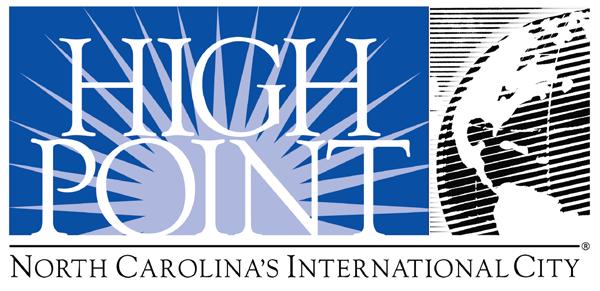
Property tax revenues represent 55.3% or $78,601,085 of the total General Fund revenues. Property tax collections are projected to increase approximately $3,500,918, or 4.7%. The projected collections are based on a collection rate of 99.3%. The proposed General Fund property tax rate is 58.35 cents.
Sales tax revenues represent 28.8% or $40,869,850 of General Fund revenues and are projected to increase approximately $4,527,428, or 12.5% due to strong increases in retail sales tax during the current year and projected to continue in FY 2023-24. Sales tax revenue is estimated to increase approximately 4.5% above the year-end estimates. In addition, occupancy tax revenues are increasing $571,000 compared to the FY 2022-23 budget.
License and permit fees are projected to increase $329,000, or 7.8% due primarily to increased building permit activity. Charges for services are increasing by $455,751, or 6.7% due to increases in Parks and Recreation program revenue, including at Blair Park and Oak Hollow golf courses and at Oak Hollow Campground. Miscellaneous revenue is estimated to increase by $585,100. This is due to stronger investment income projections.
Personnel Services include an average mid-year merit adjustment of 3% and increased employer contributions for retirement. The general fund budget includes the addition of 2 full-time positions and 5 reclassification of existing positions. Details are in the Manager's Message.
Operating expenditures are increasing $1,845,750 or 7.2%. $571,000 of this is an increase to the contribution to Visit High Point, which is completely offset by an increased budget for occupancy tax revenues. Other drivers include increases to computer and software license fees ($524,000), higher Fleet Services charges for additional vehicle replacements ($510,000), and increased consulting/professional services (389,000), mainly due to inflationary pressures.
Capital outlay funding is budgeted at $1,480,546 for FY 2023-24. This is driven by maintenance and repairs for Parks and Recreation, Information Technology equipment, and funding for the fire apparatus replacement program.
Interfund transfers out are increasing by $1,908,088. The general fund contribution for capital projects increased $1,132,575, helping meet growing deferred maintenance and other capital needs of the general fund service areas. The proposed budget also includes a $600,000 reimbursement to the Solid Waste Post-Closure Fund, the first payment for the interfund loan provided for the City Lake Park improvements.








Property Tax General Fund Property Tax
Charges for Services Charges for Services from General and Miscellaneous Revenues
Intergovernmental Revenues Revenues from Federal, State and other Local jurisdictions
Sales & Use Tax/Licenses and Fees Sales Tax, Vehicle Tax, Room Occupancy Tax, Licenses, Permits, Inspections, Library Fines, and other Miscellaneous Fees Appropriated Fund Balance Fund Balances










Public Safety Communications Center, Police, Fire, Building Inspections
Recreation/Culture/ Neighborhoods
General Government
Transportation/Public Services
Parks & Recreation, Library, Theatre, Outside Agencies, Economic Development, Community Development & Housing, Planning
Governing Body, City Management, City Attorney, Budget & Evaluation, Human Relations, Engineering, Information Technology Services, Human Resources, Financial Services, Special Appropriations

Transportation, Streets Maintenance, Public Services
Other Transfers & Reimbursements, General Contingency
$755,842
SANDRA KEENEY, CITY CLERK
Mission Statement
The mission of the City Clerk's Office is to keep and maintain records of the High Point City Council including minutes, ordinances, resolutions, contracts and other vital documents, and to perform other duties as may be required by the High Point Charter/Code of Ordinances and the North Carolina General Statutes. Budget Summary

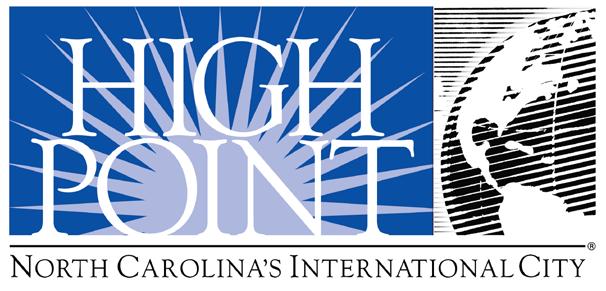
$ 1,313,355
Mission Statement
The City Manager’s Office provides overall leadership and direction for carrying out the policy directives of the City Council and setting the standards for delivering excellent public programs and services to the City of High Point. The Manager’s Office provides strategic guidance to the City Council on issues of importance to the city in order to bring together the community’s human, economic and civic resources for the purpose of creating the single most livable, safe and prosperous community in America.
Budget Summary
 TASHA LOGAN FORD, CITY MANAGER
TASHA LOGAN FORD, CITY MANAGER


$ 1,871,213
MEGHAN MAGUIRE, CITY ATTORNEY (INTERIM)
Mission Statement
The City Attorney's primary purpose is to advise the City Council and administration on legal aspects of the City's activities, administer the legal programs of the City and advocate the City's legal interests before the courts.
Budget Summary
$ 1,193,226
JERON HOLLIS, MANAGING DIRECTORMission Statement
The Office of Communications & Public Engagement strives to keep residents engaged and informed about the mission, programs and services offered by the City of High Point through various media platforms. We support the City Council, City Manager and City of High Point staff by enhancing the delivery of information to our various community audiences and by helping to promote our organization’s values of integrity and excellence.

- The proposed budget includes $25,000 in the Human Relations Divison budget to cover the costs of a large outreach event in the community. Funding will cover entertainment, a stage, and other required amenities.

$ 2,077,028
ANGELA KIRKWOOD, DIRECTORMission Statement
The mission of the Human Resources department is to provide services that promote a work environment characterized by fair treatment of staff, open communications, personal accountability, trust and mutual respect.



$ 2,637,623
BOBBY FITZJOHN, DIRECTORMission Statement
The mission of the Financial Services Administration division is to provide a centralized resource for the City's financial affairs, including establishing and maintaining the City's fiscal policies and procedures; coordinating and managing the City's capital projects and debt management programs; providing an internal audit function to safeguard assets and assist with operational efficiencies and compliance with City policies, federal and state laws, and administrative regulations; and coordinating the efficiency and effectiveness of other divisions within the Financial Services Department.
Budget Summary
Budget Highlights
- The proposed FY 2023-24 budget includes an additional $48,500 for increased audit fees and actuarial studies for other post-empoyment benefits (OPEB) and an incurred budget not reported (IBNR) report.

$ 4,357,886
TREVOR SPENCER, DIRECTOR
Mission Statement
The Engineering Services' mission is to assist in making High Point the most livable and prosperous community by providing professional engineering services to other City departments with direct contact and service missions to the public. When directly involved with individual citizens, we advise, solve problems, answer complaints and regulate development for quality assurance. We are dedicated to innovation, teamwork, and professional engineering, while providing quality construction through inspection and contract administration.
Budget Summary

Personnel Summary
Performance Measures

$ 12,184,611
STEVE R. LINGERFELT, DIRECTORMission Statement
The Communication and Information Services Division will provide relevant and timely solutions to business issues to enable our customers to support the City’s vision in a secure and reliable customer service driven environment. The mission of the Communications Services Division is to provide the citizens of High Point with a central point of contact to request public safety services and to dispatch those services in a timely and cost effective manner.

Budget Highlights
- The Information Technology Services Administration proposed budget includes funding for an expansion and upgrade of the current wireless coverage area (including the downtown furniture market area) ($88,000), a replacement of an access layer switch that is at the end of its useful life ($117,046), and network access controls ($51,000) that will allow every hardware device that connects in City Hall to be authenticated.
- The cost for licenses and maintenance and existing information technology applications has increased for many city functions, totaling approximately $400,000. The costs of these increases range from as low as $1,500 to as high as $40,000, depending on the size and scope of the application. Some of the applications included are time and attendance management software, budget management software, website optimization, GIS systems, construction project management software, and network and firewalll systems and software, among others.
- The Communications Center budget includes the reclassification of two vacant part-time telecommunicator positions into one full-time telecommunicator position. The net budget impact of this reclassification is $29,947, incuding benefits.

Proposed 2023-2024 Operating Budget
$3 7,882,158
TRAVIS STROUD, POLICE CHIEF
Mission Statement
To make High Point a safe city by developing leaders and employees in crime fighting, community engagement, training, and professional policing.
Budget Summary

- Each year, Human Resources studies the classification and compensation of 1/3 of city positions. During FY 2022-23, Police Department positions were inlcuded as part of this study and increases were implemented in the fall of 2022. The proposed budget includes the salary increases implemented for the Police Department.
- The proposed budget includes the reclassification of a vacant sworn officer position to a firearms and tool mark examiner position. This is a specialized position within the Investigations Division responsible for the exmaination and classification of firearms and ammunition. The net budget impact for this reclassification is $75,723, mainly due to operating equipment and training, as well as a vehicle for the position.

Budget Highlights – continued
- The Police Department is in the process of transitioning their body worn cameras to a new vendor. The first year cost for this transition is $462,160 and includes storage of body cameara footage, maintenance of cameras, and upgrades to new cameras midway through the contract period (2.5 years) and at the end of the contract.

$ 28,439,097
TOMMY REID, FIRE CHIEFMission Statement
The High Point Fire Department's mission is to serve the citizens of High Point by protecting lives and property throughout the City by emphasizing preparedness, education, prevention and intervention.

Personnel Summary
Performance Measures
- The proposed budget includes $1,185,000 in capital outlay for Fire Suppression. This includes funding for station generators ($195,000), thermal imaging cameras ($30,000), jaws of life ($40,000), and the replacement of an engine apparatus truck ($920,000).


$ 16,172,237
LEE TILLERY, DIRECTORMission Statement
The purpose of the Administration Division is to provide the various administrative functions of the department and provide supervision to the divisions that provide recreational programs, neighborhood recreation centers, and landscaping and grounds maintenance. Park Rangers are also included in this accounting unit. The Programs Division consists of the various athletic programs, each of the neighborhood, recreation centers, Aspire, and Senior Citizen Services. The Special Facilities Division of the Parks and Recreation Department consists of City Lake Park and Pool, Washington Terrace Pool, Oak Hollow Marina and Park, Tennis, Golf, and Grillrooms as well as Blair Park Golf and Grillrooms. The Parks Division of the Parks and Recreation Department provides services for landscaping and facilities and grounds, which include mowing and landscaping at City facilities, medians, and islands. The division does field preparation and maintenance for the various athletic fields in the city.
- The proposed Parks and Recreation budget includes the addition of one assistant recreation supervisor position for City Lake Park. This position would allow for direct and consistent management of the Meeting & Event Center activities as well as the numerous special events in the park throughout the year.
The propsed budget also includes the reclassification of the marketing coordinator position from part-time with benefits to full-time. Making this position full-time would give the department the ability to do more marketing for programs and facilities and implement more marketing campaigns for the department.
- The current fee schedule for Parks and Recreation allows for residents and non-residents to rent swim lanes for competition, in one hour intervals. This rental currently includes eight lanes. The proposed budget

reduces the number of lanes rented to six, allowing two to remain available for public use during competitions.
- Many costs are increasing for existing Parks and Recreation supplies and services, including janitorial contracts, HVAC contracts, chemicals for pools, fertilizer, and equipment leases. The proposed budget is increased by approximately $115,000 to account for these cost increases.
- The proposed budget includes the addition of two passenger vans for Parks and Recreation ($56,000 each). One for the ASPIRE program and one for Allen Jay Recreation Center. Currently these programs borrow vans from other locations and program usage is increasing, making the need more prevalent. Rental vans are also much more difficult to acquire in today’s environment. The vans will be purchased by Fleet Services and are funded via a transfer from the general fund. Once acquired they will be assigned to Parks and Recreation.
- The budget includes funding for the replacement of various equipment and rolling stock needs. These include a replacement pole vault landing pit ($28,000), replacement mowers and other landscaping equipment ($30,000), a utility tractor for Oak Hollow Golf Course ($27,500), and the replacement of picnic shelters at City Lake Park ($54,000).

$ 6,820,642
MARY M. SIZEMORE, DIRECTORMission Statement
The library mission is to nurture the joy of reading, share the power of knowledge, strengthen the sense of community, and enhance community vitality. The library supports this mission by focusing on the library strategic priorities of creating a customer-centered workforce, building cross functional teamwork capacity, maximizing operational effectiveness, using our facility and technology innovatively, and providing convenient and available access. The library serves customers and staff by acquiring, cataloging library materials and by maintaining an electronic database of library materials. The library serves children from birth through age 12, and their caregivers with programming developed to encourage, support, and foster the child's inalienable right to read, learn, and become the person of their choice. The library assists library users of all ages to locate requested materials, specific, general, business-related, and genealogical information using the resources of the City's library, other libraries, and on-line information sources and databases. The library develops and markets adult and young adult fiction book collections and non-print materials collections. The library lends the library's circulating materials through in person and prepares remote checkout.
The History Museum shares greater High Point's history by exploring the power of memory and providing perspective for current issues and by strengthening the sense of community.

Budget Summary, cont.

Personnel Summary, cont.
- The proposd budget includes the reclassification of a part-time benefitted library outreach coordinator in Children’s Services to full-time. The net budget impact of this reclassification is $14,158.

Proposed 2023-2024 Operating Budget
$ 1,387,321
DAVID BRIGGS, DIRECTORMission Statement
The mission of the High Point Theatre is to excel in quality programming, customer service and facility utilization. The High Point Theatre's contribution to the cultural and artistic climate can help High Point in becoming the most livable city in North Carolina.
Budget Summary

Personnel Summary

Proposed 2023-2024 Operating Budget
$ 523,891
SANDY DUNBECK, DIRECTORMission Statement
The High Point Economic Development Corporation is a public-private organization whose mission is to: work to retain existing business and industry in the City of High Point; assist local companies in expanding; attract new business to locate in High Point; and encourage the creation of head-of-household jobs for Piedmont Triad residents.

$ 3,581,739
GREG VENABLE, DIRECTOR
Mission Statement
The Department of Transportation is responsible for the safe and efficient movement of persons and goods on a system of streets and thoroughfares within the City of High Point.

- The proposed budget includes the reclassification of a vacant position in Transportation Administration to an Assistant Transportation Director. The total budget impact of this reclassification, including benefits, is $74,323.

- The proposed budget includes $25,000 for a replacement printer and a replacement plotter/cutter. The printer fabricates signs and banners and other visuals for the department. The plotter/cutter cuts specialty signs, for example street name signs, that cannot be purchased in bulk.
- In an effort to re-stripe more roadways throughout the city, funding for the long line striping contact is increasing by approximately $17,000.

Proposed 2023-2024 Operating Budget

$ 1,584,472
SUSHIL NEPAL, DIRECTOR
Mission Statement
Shaping a more livable High Point by facilitating and promoting a shared, comprehensive plan for the development of the community that advances a quality environment, both natural and built; by creating strategies that guide development in a manner that protects and enhances the community; and by administering services that implement the comprehensive plan and form a safe, sustainable and livable place.
Budget Summary
Proposed 2023-2024 Operating Budget
$ 2,516,407
REGGIE HUCKS, DIRECTOR
Mission Statement
Provide timely and accurate reviews of development proposals to ensure consistency with the city's goals and objectives. Conduct work program projects to promote sustainable, cost-efficient and coordinated development. Provide full, clear and accurate information in all activities. To administer the Uniform Statewide Building Code and associated laws and ordinances of the City of High Point in a courteous, responsive, and professional manner in order to contribute to the health, safety, and welfare of the community.
Budget Summary BUDGET


$ 2,412,447
NENA WILSON, DIRECTORMission Statement
It is the responsibility of the Local Codes Enforcement section to provide for clean, healthy livable neighborhoods through the enforcement of the minimum housing code, public nuisance code, zoning and vehicle ordinance. It is accomplished through the investigation and inspection of citizen and public official complaints and through the targeted enforcement neighborhoods.
Budget Summary

- Due to reductions in the amount of federal Community Development Block Grant (CDBG) funds the City receives, the proposed budget transfers three Community Development positions from the Special Revenue Fund to the General Fund. This will allow the programs covered by CDBG funds to remain in place at their current level of service. The total cost, including benefits, is approximately $244,000.
- The proposed budget includes $35,000 for the Winter Shelter Program. This program provides funds to emergency homeless shelters to expand their capacity during the winter months and increase the number of available beds for the homeless.

$ 9,091,616
ROBBY STONE, DIRECTORMission Statement
The purpose of the Public Services Administrative group is to oversee the divisions that provide the citizens of High Point with garbage collection, recyclables collection, yard waste collection, loose trash collection, a Material Recovery Facility, a solid waste disposal facility, a yard waste composting facility, public cemeteries, stormwater maintenance, and road and bridge maintenance services. The Street Maintenance Division strives to provide the safest and best roadways possible for citizens of the City of High Point Budget

Personnel Summary
- The proposed budget includes increased cemetery fees for Public Services. The cost to perform grave openings and closings has increased and the increased fee will assist in recovering this cost. Additionally, a range of costs for cremation urns is proposed, based on size, instead of the existing flat cost no matter the size of the urn.

- The Cemeteries Division budget includes an additional $43,000 for the removal of dead trees and limbs at Greenhill and Oakwood cemeteries. The removal requires extra caution so as not to disturb the gravestones and markers at the cemeteries.
- Costs for supplies have increased with inflation. Concrete and asphalt have increased about 15%, adding $70,485 to the Streets Maintenance budget.
$ 4,801 , 487
Mission Statement
Special Appropriations budgets have been designated to present recommended appropriations for City contributions to outside agencies and other general fund expenditures not provided for in routine operating budgets.
Special Appropriations includes funds for the following:
♦ $890,987 for general property and general liability insurances.
♦ $189,658 for city-wide memberships to groups such as Piedmont Triad Council of Governments and the Guilford County Economic Development Alliance among others.

♦ $250,000 for Marketing and Branding Task Force recommendations
♦ $2,221,000 transfer to the High Point Convention & Visitor's Bureau
♦ $250,000 allocation to Forward High Point
♦ $511,401 for outside agency funding
♦ $624,337 for property tax administration
♦ ($1,000,000) in salary savings
Proposed 2023-2024 Operating Budget

$108,958
Mission Statement
Transfers and Reimbursements budgets are used to account for the transfers and reimbursements to other funds for direct and indirect costs.
Budget Summary
To meet recommendations on the presentation of budget transfers and reimbursements from the Government Finance Officers Association (GFOA), we show certain transfers as offsetting expenses which is a negative number.
Includes the following annual transfers:
$ 400,000
Mission Statement
General Contingency is an appropriation in the General Fund used at the City Council's discretion to provide budget for unanticipated expenditures. Amounts can only be transferred from contingency for a specific purpose with City Council approval.
Budget Summary


$12,507,829
The General Debt Service fund is used to account for the accumulation of resources for, and the payment of long-term general long-term debt principal and interest. Debt service for proprietary funds are found in the individual fund summaries.
Budget Summary
The General Debt Service Fund includes a dedicated 3.4 cents of the tax rate to fund the 2004 bond authorization. The budget also includes the revenue associated with the Downtown Multi-Use Stadium project, including funds from the stadium operating agreement, the funding commitment of $250,000 annually from the Convention and Visitors Bureau, and the tax increment financing estimate. The tax increment financing estimate for FY 2023-24 is $1,652,294.

The budget includes funding for all current debt service. The below table shows the proposed schedule of of debt payments for FY 2023-24.

$6,732,918
The General Capital Projects Fund is used to account for pay-go General Fund capital projects. Resources for these projects are used for the acquisition or construction of capital facilities, other than those financed by the enterprise funds. Long-term general capital projects, which are generally financed by general obligation bonds, can be found in the Capital Improvement Program section of this document.
Budget Summary
Funding for General Capital Projects comes from a transfer from the General Fund. The Enterprise Resource Planning (ERP) Upgrade project also includes funding from the Water/Sewer Fund ($375,000), Electric Fund ($600,000), Solid Waste Fund ($105,000), and Stormwater Fund ($45,000). The Local Match for NCDOT Projects also includes funding from Federal Grants ($792,000). The CMAQ – Traffic Signal Timing Project includes funding from Federal Grants ($1,218,020).
A summary of funded projects can be found on the next page. Detailed information on all General Capital Projects can be found in the Capital Improvement Plan (CIP) section of the document.
*The Enterprise Resource Planning (ERP) Upgrade project is funded by the General ($375,000), Water/Sewer ($375,000), Electric ($600,000), Solid Waste ($105,000), and Stormwater ($45,000) funds.

**The Local Match for NCDOT Projects includes funding from the General Fund ($113,060) and Federal Grants ($792,000).
***The CMAQ – Traffic Signal Timing Project includes funding from the General Fund ($196,515) and Federal Grants ($1,218,020).



$66,203,918
The Water and Sewer Fund operations come under the direction of the Public Services Department. This fund is used to account for the provision of water and sewer services to the residents of the City and some County residents. All expenses necessary to provide such services are accounted for in this fund as well as debt service on water-sewer bond issues.
The proposed budget increases water and sewer rates by 4%. The increased rates will help fund increases in operating costs, including supplies and chemicals, as well as the infrastructure needs of the aging system.
The proposed budget for water and sewer operations does not include any appropriation of reserves.
Personnel Services is increasing $626,940, or 5.0%, due to an average mid-year merit adjustment of 3% and an increased employer contribution for retirement.
Operating expenses are increased $1,393,174, or 8.8% due to significant increases in costs for chemicals, funding for testing to meet EPA guidelines, emergency sludge hauling, painting, and other professional services, and maintenance supplies for the aging parts of the system.
Pay-go capital includes $10,998,250 in funding for water and sewer capital projects.

$66,203,

Mission Statement
The purpose of the Public Services Water and Sewer Administration group is to oversee the divisions that provide the citizens and businesses of High Point with high quality drinking water and a system to collect and treat wastewater and to protect the environment through effective wastewater treatment in accordance with the rules and regulations of the state and EPA. Administration manages the divisions of water supply, treatment, and distribution as well as sewer collection and wastewater treatment to ensure that all services are provided effectively and efficiently according to city policy.

Personnel Summary, cont.
Performance Measures




$135,366,700
The Electric Fund is used to account for the Electric Operations Department as well as the Customer Service Department. Collectively, these departments provide electric services and simple information access to the residents and businesses of the City of High Point. All expenses necessary to provide such services are accounted for in this fund.

The proposed budget includes no changes to electric rates. Currently, our rate consultant is finalizing a rate study for a restructuring of rates on the commercial/industrial side. Once complete, the findings will be presented to the City Council.

The proposed budget includes increased fees in Customer Service for after-hour service fees, extra trip fees, and electric services disconnected at the pole. These fee increases will help offset the cost of staff and transportation for these service calls. There is also a proposed increase to the meter tampering/investigation charge, in an effort to discourage customers from tampering with their meters and increasing customer safety.
Personnel Services include an average mid-year merit adjustment of 3% and an increased employer contribution for retirement. The proposed budget includes two additional positions for Electric, a utility locator to assist with the growing number of locates requested each year, and a power line technician to aid with the continuing growth of energy infrastructure.
Wholesale power cost for FY 2023-24 is budgeted at $90.0 million, which is the single largest expense in the Electric Fund and citywide budget.
The budget plan continues to invest funds to maintain electric infrastructure and includes $9,850,000 in major capital projects. These routine capital investments are necessary to maintain efficient and ongoing operation of the Electric System.
$6, 369 , 336
JEREMY COBLE, CUSTOMER SERVICE DIRECTOR
Mission Statement
The Customer Service Department will serve as the catalyst to provide simple and easy access to our customers as they request information and/or services and utilities from the City of High Point. We will work to blend the needs of our customers and the operation of City departments to broker a positive response for the purpose of creating healthy families, safe and livable neighborhoods and prosperous business.
Budget Summary


Proposed 2023-2024 Operating Budget
$1 28 , 997 , 364
TYLER BERRIER, ELECTRIC UTILITIES DIRECTOR
Mission Statement
The Electric Department strives to maintain and improve efficiency of the department including but not limited to quality street lighting, outdoor lighting, substation and line maintenance as well as to provide new facilities for electric system growth. Our mission is to promote a prosperous community for the benefit of the City of High Point residents.

Budget Summary, cont.


Note: Capital projects are transitioning from the Electric Fund to the Electric Capital Project Fund. The above table combines the two for comparison purposes.

$544,454
The Parking Facilities Fund operates under the direction of the Transportation Department. The fund is used to account for the operation and maintenance of the City's various parking facilities.

Revenues
The proposed budget includes increases in parking rates at the city parking decks. While the hourly rate remains at $1.00, the daily maximum is increased to $10.00. In addition, the flat cost for monthly parking
is increased based on the number of spaces rented.
The Parking Fund is subsidized by a $281,479 transfer from the general fund.
Expenditures
Operating expenses are increased approximately $35,000, primarily driven by increased maintenance funds for additional pressure cleaning and other needs at the parking decks.
Proposed 2023-2024 Operating Budget
$5 44,454
GREG VENABLE, TRANSPORTATION DIRECTOR
Mission Statement
The Parking Facilities Division is responsible for providing and maintaining safe, off-street parking facilities to the citizens and visitors to the City of High Point. The fund operates under the direction of the Director of Transportation.




$21,011,311
The Solid Waste Fund operations come under the direction of the Public Services Department. The fund is used to account for the operation and maintenance of the City's landfill, municipal recycling facility, and garbage collection service. Budget Summary
Revenues
Due to the expansion of residential units in the City of High Point creating more accounts, more miles on the equipment, higher fuel costs, and more trips to the landfill due to increased solid waste, an increase of $1 per month to the solid waste availability fee is proposed. This fee is applicable to all customers who receive solid waste collection services – both single and multi-family homes.

Additionally, there are proposed fee increases to the rental of a Red Box (4x8x14 feet) for major clean-up projects and for garbage roll-out containers (for new residents) and recycling and yard waste carts. The cost to acquire these carts has increased and the higher fee will allow for continued cost recovery for the Solid Waste Division.
The budget includes an appropriation of $2,485,561 in reserves.
Expenditures
Personnel Services include an average mid-year merit adjustment of 3% and an increased employer contribution for retirement.
Operating expenses are increased by $662,982, an increase of 7.5%. Major drivers of this increases includes vehicle replacement charges ($168,558), outside vehicle repairs ($236,785), and additional sampling ($52,000) required by the North Carilina Department of Environmental Quality (NCDEQ).
Solid Waste capital projects have been transitioned out of the operating budget and into the Solid Waste Capital Fund. The full list of proposed projects can be found in Capital Improvement Plan (CIP) section of the document.
$ 21,011,311
ROBBY STONE, PUBLIC SERVICES DIRECTOR
Mission Statement
The Ingleside Compost facility is the collection point for the drop off of residential and commercial yard waste and providing products for purchase (mulch and engineered soil). Landfill Operations will provide a safe and equitable means of solid waste disposal for its customers while complying with all state and federal rules or regulations. The Material Recovery Facility will provide the citizens of High Point with a material recovery facility which properly processes, separates, package and ships an estimated 9,000+ tons annually of co-mingled recyclables and provides cardboard recovery for bi-annual Furniture Markets. The Environmental Services division provides the customers of High Point with quality weekly collection of household waste, yard waste, and bulky items and bi-weekly recycling collection to ensure a safe and livable community
Budget Summary
Budget Summary, cont.
Personnel Summary

Note: Capital projects are transitioning from the Solid Waste Fund to the
The above table combines the two for comparison purposes.



$7,700,065
The Stormwater Fund is used to account for the operation and maintenance of the City's Stormwater program which manages runoff through pipe maintenance/repair, ditch maintenance, stream cleaning, bank stabilization, and oversight of detention lakes and ponds maintenance. Budget Summary

A stormwater fee increase of $1 per Equivalent Residential Unit (ERU) is proposed. This fee is charged monthly, and the increase will assist in funding growing costs, the increased use of outside contractors to perform projects, and several large stormwater improvements projects currently under development.
The proposed budget includes an appropriation of $1,520,952 in fund balance.
Personnel services include an average mid-year merit adjustment of 3% and an increased employer contribution for retirement.
The operating budget includes $450,000 for contractual services to perform routine stormwater maintenance, due to high vacancies within the existing personnel.
Stormwater capital projects have been transitioned out of the operating budget and into the Stormwater Capital Fund. The full list of proposed projects can be found in the Capital Improvement Plan (CIP) section of the document.
$ 7,70 0, 065
ROBBY STONE, PUBLIC SERVICES DIRECTOR
Mission Statement
The mission of the Stormwater Fund is to provides citizens with a comprehensive Stormwater management program that addresses Stormwater pollution and provides timely assistance in making drainage improvements on public and private property based on eligibility and prioritized needs.
Personnel Summary

Note: Capital projects are transitioning from the Stormwater Fund to the Stormwater Capital Project Fund. The above table combines the two for comparison purposes.


Propos ed 202 3- 202 4 Operating Budget
$18,586,116
The Central Services Fund is used to account for the financing of goods and services provided by one department to other departments on a cost reimbursement basis.
Budget Summary
Revenues
Fleet charges are increased $1.31 million to cover the increased budget for vehicle and other rolling stock replacements. A new Print Shop internal service is proposed for FY 2023-24. This division will be responsible for providing printing and copying services to all City Departments, as well as receiving, processing, and deliverying all incoming and outgoing City mail.
The proposed budget replaces $4.65 million in vehicles funded with pay-go funding from the Fleet division of the Central Services Fund. Planned fleet purchases include one (1) tandem dump truck, five (5) police vehicles, two (2) fire SUV’s, three (3) automated refuse trucks, two (2) small rear packing refuse trucks, small SUV’s, light duty pickup trucks, body equipped work trucks, a bucket truck, two 15-passenger vans, an underground utilities vehicle, a Jet/Vac truck, a paving patching truck, and other necessary rolling stock. The total cost of requested vehicles and rolling stock replacements that meet the replacement criteria totals $9.7 million dollars.
The new Print Shop service is budgeted at $350,000 for FY 2023-24.

Proposed 2023-2024 Operating Budget
$ 2,234 , 96 1
STEVEN R. LINGERFELT, DIRECTORMission Statement
The Radio Maintenance Division operations come under the direction of the Information Technology Department. This division is responsible for the installation and maintenance of all City-owned two-way communications systems and components.
Budget Summary

Proposed 2023-2024 Operating Budget
$ 87 3,500
STEVEN R. LINGERFELT, DIRECTORMission Statement
This division's operations come under the direction of the Information Technology Department. Operations in this division provide budgetary information and internal billings for replacing existing computers and related equipment.


$15,127, 655
KEVIN ROGERS, DIRECTORMission Statement
The mission is to provide our customers with the highest quality fleet management services at the lowest possible cost. We strive to service the equipment in the most cost-effective manner possible through high productivity of our personnel and sound professional decisions in the management of the fleet. We are proud of our organization and the services that we provide through hard work, professionalism, and a positive image our people present. We appreciate and encourage pride in services rendered
Personnel Summary

$ 350,000
JERON HOLLIS, MANAGING DIRECTORMission Statement
The Print Shop operations come under the direction of the Communications and Public Engagement Department. This division is responsible for providing printing and copying services to all City Departments, as well as receiving, processing, and deliverying all incoming and outgoing City mail.

$1,500,000
The Economic Development Incentive fund is used at the City Council’s direction to provide for possible incentives for economic development within the City of High Point.

Revenues
Incentive payments are funded by previously accumulated reserves, and transfers from the General Fund and the Electric Fund.
Expenditures
Economic development incentives are budgeted at $1,500,000 for FY 2023-24.

$21,642,375
The Insurance Reserve Fund is used to budget expenses for health, dental, life insurance, and workers’ compensation insurance contracts.
Budget Summary
The per employee cost for health and dental premiums is increased 3% for FY 2023-24. There is no increase to the employee contribution for health and dental.

Expenditures are based on recent year trends in which actual expenses have come in less than originally budgeted. Workers’ compensation claims have increased significantly over the past year, and the budget is increased to reflect that trend.
The fund has reserves available, if needed, for unanticipated expenses or larger than expected increases in premiums. Due to the availbility of reserves, the new fiscal year will see the city transition to self-insured for the insurance reserve fund. This transition will also allow the addition of an employee health clinic that will expand services offered at the health and wellness clinic for employees. The intended purpose would be to continue to lower healthcare costs and maximize employees’ health.
$3,225,000
The Market Authority Fund is a public-private partnership sponsor of the International Home Furnishings Market to develop strategies and priorities to address transportation, parking, hospitality, promotion, and other improvements for the annual spring and fall markets

Current year trends see an increase in room occupancy taxes. Room occupancy taxes are now higher than pre-pandemic levels.
The City passes through the revenues received in the Market Authority Fund to the Market Authority. Therefore, expenditures will match revenues.
$2,579,471
The Community Development Fund accounts for the receipt and disbursement of all grants, including federal, state, and local grants or entitlements, related to the Community Development Block Grant program. The budget appropriation represents that portion of existing grants which were not fully expended in the prior fiscal year, and which will be reestablished in the current year, and also allowance for grants that will be received during the current year.


$4,185,035
The Special Grants Fund accounts for the receipt and disbursement of all grants, including federal, state, and local grants or entitlements but excluding the Community Development Block Grant. The budget appropriation represents that portion of existing grants which were not fully expended in the prior fiscal year, and which will be reestablished in the current year, and also allowance for grants that will be received during the current year.


$5,677,034
The Public Transportation division is responsible for providing safe, reliable transportation at a fair cost to all the citizens of High Point through the High Point Transit System (HPTS), which offers fixed route bus service, ADA complementary paratransit service, and door-to-door demand responsive service for the elderly

Budget Highlights
- Federal grant revenue for operating assistance is budgeted at $2,525,442 for FY 2023-24. State Maintenance Assistance Program (SMAP) funds were restored in last year’s budget and the proposed budget includes $500,000 from this program.

- The Transit Fund is subsidized by a transfer from the General Fund totaling $1,661,176 for FY 2023-24.
- Personnel Services include an average mid-year merit adjustment of 3% and an increased employer contribution for retirement.
The Capital Improvement Program (CIP) is a prioritized, multi-year plan for major capital expenditures, such as the construction, reconstruction, renovation or replacement of a public building, facility or major equipment items; the purchase of land, buildings or facilities for a public purpose; studies and surveys leading to such physical improvements or any combination of the above. By providing a planned schedule of public improvements, the program outlines present and future needs and intentions. A capital improvement project should have a cost greater than $15,000 and a useful life of at least ten years.
The City of High Point’s capital improvement program is the result of a detailed financial planning process used by City leaders to establish funding priorities of major capital projects. The purpose is to address the City’s immediate and long-term capital needs in a conscious effort to best provide services and facilities to the citizens of High Point.

To accomplish this, the CIP process consists of a three-phase mechanism. Mid-year department heads submit a five-year capital plan to the Budget and Evaluation Division for consideration. This requires substantial planning at the department level to identify projects that are deemed necessary to respond to public needs.
A vital segment of the proposal includes entering project financial information into Questica which projects cost estimates as well as the revenue sources for the project. Submission of the project’s financial information is a fundamental component in coordinating the available resources to fund the project.
The second phase of the CIP process includes review of each proposal by the Budget and Evaluation Division. Factors analyzed include:
• The priority of the project as defined by City leaders or formal Council policy
• Feasible funding sources in relation to the projected timetable
• Impact the project will have on the operating budget and service levels
The projects are evaluated according to the following criteria:
• Risk to Public Safety or Health
• Deteriorated Facility
• Systematic Replacement
• Improvement of Operating Efficiency
• Coordination
• Equitable Provision of Services/Facilities
• Protection and Conservation of Resources
The budget staff compiles a priority list as the projects relate to the City’s overall mission of “…creating the single most livable, safe and prosperous community in America.” This list of proposed projects is presented to the management team.
The final phase consists of compiling the five-year Capital Improvement Program for consideration by the City Council as part of the budget review and adoption process. Recognizing that needs and priorities vary from year-to-year, only the first fiscal year of the five-year program is considered for adoption. The subsequent four years are used for strategic financial planning purposes.

Funding for the Capital Improvement Program varies by fund. Typically, in the General Capital Projects Fund most of the funding comes by transfer from the General Fund.
For Water and Sewer capital projects, funding comes into the Water & Sewer Capital Projects Fund by transfer from the Water and Sewer Fund. The other utility funds (Electric, Solid Waste, and Stormwater Funds) are in a transition stage. Therefore, existing capital projects are included within the fund; and in new projects, funding comes into the Capital Funds by transfer from the respective fund.
Projects that authorize the construction or acquisition of major capital and will extend more than one fiscal year are adopted in Capital Project Ordinance Funds, which are in effect for the life of the project. Bonds, state and federal grants, or some combination of these normally fund these projects. The uniqueness of these funds is that they do not require reappropriation each fiscal year and are not part of the regular budget but are adopted separately.
The capital budget summary shown below of $50,680,700 is the first year of a five-year capital improvement program which is reviewed and updated annually to meet the capital needs of the community. The largest portions are in Water & Sewer and Electric. Water & Sewer includes $2.16 million for the Burton Road Utilities and $1.3 million to upgrade the SCADA computer and server at Ward and Eastside. Electric is funding a switch to an automated meter reading initiative of $1.5 million, $2.0 million for a new Jackson Lake transformer, and $2.5 million for electrical utilities for the Eastchester Widening project. Public Services funding is primarily related to a 100% federally funded $5.0 million dollar grant for stormwater infrastructure improvements along W. Green Drive.
Infrastructure improvements remain a top priority of the City's long-term capital planning as the City of High Point prepares for the present and future challenges of an aging infrastructure, safe water quality and availability of safe waste disposal.



Capital project ordinances authorize the construction or acquisition of major capital and continue in effect for the life of the project that extends over more than one fiscal year and do not require re-appropriation each fiscal year.
The information presented below represents the status of our currently authorized capital project ordinances as of April 13, 2023. Actual expenses do not include funds that are encumbered.






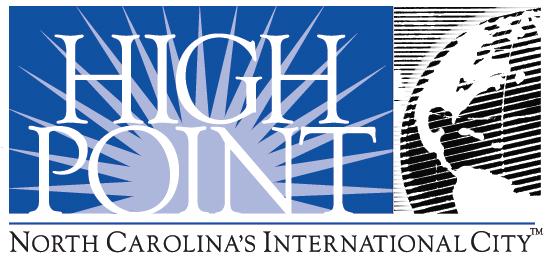

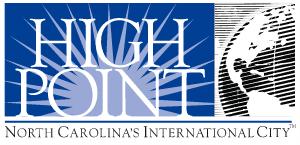
Project Title: Enterprise Resource Planning (ERP) Upgrade
Project Type: Software
Start Date: July 1, 2018
Est. Completion Date: December 1, 2024
Description: This is an upgrade from Lawson Version 10 to a new ERP system. Project Details

Project Title: Citywide Deferred Maintenance Program
Project Type: Improvements
Start Date: July 1, 2023
Est. Completion Date: Ongoing
Description: The Citywide Deferred Maintenance Program allows the department to cover deferred maintenance needs, as well as other needed improvements, at all of the facilities throughout the City.
Project Details

Project Title: Burn Facility
Project Type: Public Safety
Start Date: July 1, 2022
Est. Completion Date: June 30, 2026
Description: Live burn structure for training located at training facility on W Ward.
Project Details

Project Title: High Speed Doors
Project Type: Facility Upgrades
Start Date: July 1, 2024
Est. Completion Date: June 30, 2026
Description: Fire station bay doors need to clear the door opening rapidly to make way for large equipment trucks and then close efficiently to protect the facility. Built to last over millions of opening cycles, doors are engineered for high-traffic environments for day in and day out use.
High speed EMS doors and fire station doors open quickly to help ensure fast response time and minimal loss of life and property. Needed at Fire Station 3, 4, 12 and 13

Project Title: Station Upgrades and Renovations
Project Type: Facility Upgrades
Start Date: July 1, 2017
Est. Completion Date: Ongoing
Description: Renovations and upgrades to Fire Stations throughout the City.

Project Title: Merry-Go-Round Replacement
Project Type: Equipment
Start Date: July 1, 2024
Est. Completion Date: June 30, 2025
Description: Replace the merry-go-round at City Lake Park. The current unit was purchased in 1979 and is in need of being replaced. The merry-go-round has been in use for 40+ years.
Project Details

Project Title: Playground and Equipment
Project Type: Equipment
Start Date: July 1, 2022
Est. Completion Date: Ongoing
Description: To replace older playground equipment. New equipment will comply with Playground Standards and Consumer Product Safety Commission Standards.
Project Details

Project Title: Park Improvements – Outdoor Courts
Project Type: Improvements
Start Date: July 1, 2020
Est. Completion Date: June 30, 2025
Description: Due to the age and usage, outdoor courts need to be constantly upgraded in order to better serve residents. Projected FY 2024-25 courts include Goldston Park, Vernon-Evans, and Meredith.
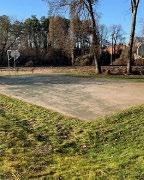

Project Title: Park Improvements – Parking Lots
Project Type: Improvements
Start Date: July 1, 2022
Est. Completion Date: June 30, 2028
Description: Many of the parking lots have deteriorated because of deferred maintenance. Projected FY 2023-24 lots include Goldston Park, Oak Hollow Overlook, and Cedrow Park. Future parking lots include Oak Hollow Campground A/D, Washington Terrace-Murray Street, Festival Park, Johnson Street Disc Golf, and University Park.
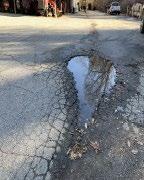

Project Title: Skateboard Park
Project Type: Improvements
Start Date: July 1, 2027
Est. Completion Date: June 30, 2028
Description: Construct a park for skateboard users.
Project Details

Project Title: Restroom Buildings
Project Type: Building Construction
Start Date: July 1, 2024
Est. Completion Date: June 30, 2025
Description: Construction of a new restroom building at Armstrong Park.
Project Details
Project Title: Southside Recreation Center Building Improvements

Project Type: Improvements
Start Date: July 1, 2023
Est. Completion Date: June 30, 2024
Description: Continue the replacement of HVAC units and exterior painting. The painting will ensure the recreation center is aesthetically pleasing and well maintained for those visiting the facility.
Project Details

Project Title: Mohawk Park Renovations
Project Type: Park Improvements
Start Date: July 1, 2027
Est. Completion Date: June 30, 2028
Description: Mohawk Park, located off Pinehurst Drive, is a small neighborhood park that has experienced problems due to the complexity and size of the park and a deteriorating stream that dissects the area. The aging infrastructure, lack of adequate play space, and erosion along the stream bank have caused problems over time.
Park improvements will address these flood and weathering issues as well as making the playground more accessible and will also include adding a small picnic shelter, renovating the tennis court, and creating a path into a nature scape.
Project Title: Parks and Recreation Deferred Maintenance Program

Project Type: Improvements
Start Date: July 1, 2023
Est. Completion Date: Ongoing
Description: The Parks and Recreation Deferred Maintenance Program allows the department to cover deferred maintenance needs at all the Parks and Recreation facilities throughout the city. FY 2023-24 projects include repairs to the Oak Hollow Golf Chemical Building and Oak Hollow Golf Clubhouse.
Project Details

Project Title: Ballfield Lighting Renovations
Project Type: Park Improvements
Start Date: July 1, 2026
Est. Completion Date: June 30, 2027
Description: The current athletic field and court lighting system is comprised of wooden light poles that support the lighting system at our various athletic courts and fields. Improving the lighting system will replace the current system that has exceeded its useful light. Furthermore, this will allow for better lighting for citizens and Parks and Recreation customers to better use these facilities. These parks include Washington Terrace (1), Cedrow (1), Allen Jay (1,2,3), Harvell Park (1) and Deep River (1,2,3).

Project Title: City Lake Park Pedestrian Bridge
Project Type: Park Improvements
Start Date: July 1, 2027
Est. Completion Date: June 30, 2028
Description: A pedestrian bridge over City Lake is needed to give pedestrians a safe way to cross from the Camp Ann side to the marina. With the opening of the new greenway bridge that carries pedestrians from the High Point Greenway into the park, a route for pedestrians to get from one side of the park to the other without walking on the roadway is needed.

Project Title: Stadium Capital Maintenance Reserve
Project Type: Maintenance
Start Date: July 1, 2020
Est. Completion Date: Ongoing
Description: This reserve is set up to provide funds available for capital maintenance, repairs and improvements for the multi-use stadium. The stadium operating agreement requires the City to budget each year for potential capital maintenance needs that may be required for the stadium.
Project Details
Project Title: Expansion of the Ann and Jim Morgran Community Room

Project Type: Building Expansion
Start Date: July 1, 2025
Est. Completion Date: June 30, 2026
Description: Expansion of the Morgan Community Room by a minimum of 250 square feet, doubling the size of the existing room. The expansion would entail moving the exterior wall (currently a window) out to create additional space.
Project Details

Project Title: Library Flooring Replacement
Project Type: Renovations
Start Date: July 1, 2023
Est. Completion Date: June 30, 2025
Description: Replacing the remaining carpet on the third floor of the library with luxury vinyl tile.
Project Details

Project Title: Air Cool Chiller Replacement at the Library
Project Type: Equipment
Start Date: July 1, 2023
Est. Completion Date: June 30, 2024
Description: Replacement of the air chiller at the Library. The original chiller is at the end of its life span and the City’s HVAC contractor has advised that parts are nearly impossible to find.
Project Details

Project Title: Museum HVAC and Envelope Improvements
Project Type: Facility Upgrade
Start Date: July 1, 2023
Est. Completion Date: June 30, 2025
Description: Replacing/upgrading HVAC for the main Museum building. Additionally, three building envelope improvements are needed: adding a French drain, replacing the lower-level roll-up door with an insulated door, and replacing the roof.
Project Title: Theatre - Gallery C Studio Conversion
Project Type: Renovations
Start Date: July 1, 2025
Est. Completion Date: June 30, 2026
Description: Renovate Gallery C at High Point Theatre into a TV/Podcast/production studio.
Project Details


Project Title: Theatre – Security Improvements
Project Type: Equipment
Start Date: July 1, 2025
Est. Completion Date: June 30, 2026
Description: Upgrade theatre video surveillance system to include intruder detection, electronic locks, and auditorium magnetic card entry systems.
Project Details
Project Title: Geographic Information Systems (GIS) Orthoimagery Program

Project Type: GIS
Start Date: Ongoing
Est. Completion Date: Ongoing
Description: The purpose of the multi-year GIS Orthoimagery Program is to update the digital data in the City's Geographic Information System (GIS) as obtained from aerial photography data. The program provides data for current & future GIS applications, including E-911 dispatch; fire and police; stormwater; zoning and land use; code enforcement; neighborhood and area plans; capital projects; and transportation projects.
Project Title: Railroad Crossing Improvements
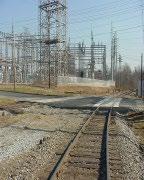

Project Type: Improvements
Start Date: July 1, 2018
Est. Completion Date: June 30, 2028
Description: Participation in crossing improvements and rail signalization at various locations citywide. Projects are identified and funded by state and federal rail agencies. Local participation is required at locations where railroad lines cross city streets. Project schedules and duration vary greatly and funding every other fiscal year should be sufficient to cover future projects.
Project Title: Local Match for North Carolina Department of Transportation (NCDOT) Funded Projects
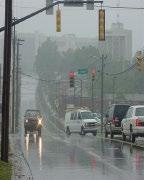

Project Type: Road Extensions
Start Date: Ongoing
Est. Completion Date: Ongoing
Description: Participation in projects developed jointly with NCDOT division office or other sections. Locations citywide. Assumes an 80% State - 20% City costshare for eligible projects. Annual funding allows for the establishment of a fund balance that can be applied to larger projects if needed.
Project Title: Johnson Street/Sandy Ridge Road Sidewalks
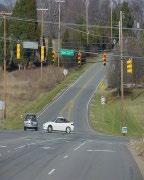

Project Type: Sidewalks
Start Date: July 1, 2012
Est. Completion Date: June 30, 2027
Description: State-funded project to widen Johnson Street and Sandy Ridge Road to a multi-lane divided road from Skeet Club Road to I-40. Project will include sidewalks, multi-use path, bike lanes, new traffic signals at select locations, and landscaping in median and along shoulders.
Project Title: Traffic Signal System Upgrades


Project Type: System Upgrade
Start Date: July 1, 2016
Est. Completion Date: December 31, 2025
Description: Upgrades and expansion of traffic signal management system operated and maintained by the City's Transportation Dept. The current system includes more than 250 traffic signals, closed circuit television (CCTV) cameras, and other traffic control devices networked via fiber optics.
Project Title: US 29 & S. Main Street Interchange Improvements


Project Type: Improvements
Start Date: January 31, 2022
Est. Completion Date: December 31, 2025
Description: Participation in the reconstruction of the US 29 & S. Main Street interchange. The City will be responsible for reimbursement to the North Carolina Department of Transportation (NCDOT) for 50% of sidewalk costs and other optional amenities requested by the City. Construction is programmed to begin in 2022. Project Details
Project Title: Mendenhall Terminal Improvements

Project Type: Improvements
Start Date: July 1, 2017
Est. Completion Date: June 30, 2026
Description: Replacement of obsolete digital message signing with backlit signs and new, larger digital screen. Include management software and other audio-visual enhancements. Kiosk modifications to accommodate additions and improve customer service. Install more efficient lighting and automated security gates at both ends. Repair or replace fireproof coatings on exterior columns.
Project Details

Project Title: City Sidewalk and Greenway Construction
Project Type: Sidewalks/Greenways
Start Date: Ongoing
Est. Completion Date: Ongoing
Description: Construction of city-funded sidewalks and greenways at prioritized locations throughout the city.
Project Details
Project Title: Congestion Mitigation Air Quality (CMAQ) and State Transportation Improvement Program (STIP) Sidewalk Construction

Project Type: Sidewalks
Start Date: July 1, 2019
Est. Completion Date: June 30, 2028
Description: State and Federally funded sidewalk projects will be locally managed and require a 20% match, with reimbursement for 80% of project costs upon completion and acceptance of the work. Locations currently identified include Eastchester Dr, Main St, Fairfield Rd, James Rd, and N. University Pkwy, plus a pedestrian bridge over I-74 on Cedrow Drive.
Project Title: Congestion Mitigation Air Quality (CMAQ) for Traffic Signal Timing
Project Type: Improvements
Start Date: October 1, 2022
Est. Completion Date: September 30, 2025
Description: Corridor and intersection analyses for major arterials in High Point, including Eastchester Drive, Wendover Avenue, N & S Main St, and others. Work will include collection of new traffic counts, verification of corridor geometries, development of new timings, implementation, and before and after evaluation. NCDOT will reimburse 80% of project costs.

Project Title: N. Main Street Intersection Improvements

Project Type: Improvements
Start Date: July 1, 2023
Est. Completion Date: June 30, 2024
Description: The project will construct intersection improvements in the 1000 block on N. Main Street to improve pedestrian walkability.
Project Details
Project Title: Traffic Services Parking & Equipment Lot Resurfacing

Project Type: Facility Upgrade
Start Date: July 1, 2025
Est. Completion Date: June 30, 2026
Description: Resurfacing of the visitor, employee, and vehicle/equipment storage parking lot at the RV Moss Traffic Service Center. In addition to parking, this area is used to store variable message signs, trailers, and other equipment and materials used by the Signs & Markings and Traffic Signals Divisions.
Project Details

Project Title: Sub-Standard Streets Maintenance
Project Type: Road Alignment
Start Date: July 1, 2016
Est. Completion Date: Ongoing
Description: There are many sub-standard publicly maintained streets in the city. There are 28 unpaved streets. Problems include insufficient right-of-way, improper drainage, etc. Funds are needed to address continual maintenance issues and customer complaints on sub-standard streets (e.g. Ennis St., Albert Ave., Venable Ct., etc.).
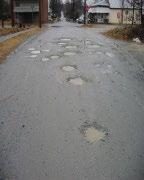

Project Title: Cemetery Paving and Asphalt Road Work
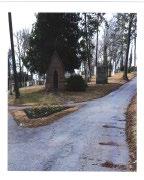
Project Type: Improvements
Start Date: July 1, 2023
Est. Completion Date: Ongoing
Description: Currently, some accesses and roads throughout the City-maintained Oakwood Cemetery are in need of repair. This asphalt resurfacing work is above and beyond regular maintenance, and is in need of full depth patching and an overlay. This work will greatly enhance the appearance of the Cemetery, and prevent the structure of the roadway from further deterioration.
Project Title: Locally Funded Bridge Maintenance and Repair

Project Type: Bridge Repair
Start Date: Ongoing
Est. Completion Date: Ongoing
Description: The city maintains 26 traffic bearing and three pedestrian bridges. Federal and State regulations require these structures to be inspected by an accredited engineer every other year. An inspection report provides a list of priority maintenance items that have to be completed within a given time frame.
Project Title: Local Match for North Carolina Department of Transportation (NCDOT) Bridge Projects

Project Type: Bridge Repair
Start Date: Ongoing
Est. Completion Date: Ongoing
Description: The city maintains 26 traffic bearing and three pedestrian bridges. Federal and State regulations require these structures to be inspected by an accredited engineer every other year. An inspection report provides a list of priority maintenance items that have to be completed within a given time frame.


Project Title: Generators – Automation and Replacement
Project Type: Improvements
Start Date: Ongoing
Est. Completion Date: Ongoing
Description: Automation of generators located at Eastside, Westside, Ward, and Riverdale LS. Ability to start/stop generators via supervisory control and data acquisition (SCADA). Will allow locations to operate in island mode and maintain operations remotely. This project will also include the annual replacement of nine (9) ageing generators at the wastewater lift stations.
Project Details

Project Title: Obsolete Water Lines
Project Type: Improvements
Start Date: Ongoing
Est. Completion Date: Ongoing
Description: Replacement or rehab of obsolete water mains, valves, and hydrants. Replacement of old and undersized water lines will reduce service interruptions, maintain system pressure, and meet the demands for peak flow.
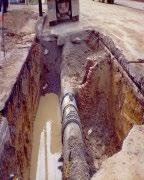

Project Title: Obsolete Sewer Lines
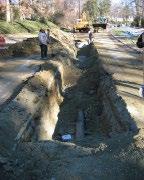
Project Type: Re-inspection & Repairs
Start Date: Ongoing
Est. Completion Date: Ongoing
Description: Replacement of deteriorated and/or undersized sewer outfall and sewer services/mains. This will reduce blockages and problems that create sewer backups and overflows.

Project Title: Alum Sludge Removal
Project Type: Maintenance
Start Date: Ongoing
Est. Completion Date: Ongoing
Description: Alum sludge will be removed from the two storage lagoons every 1-2 years by contract. This project helps to assure that the water treatment process is not interrupted, and that all phases of treatment run efficiently.
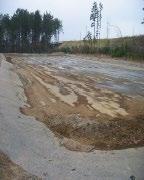
Project Title: North Carolina Department of Transportation (NCDOT) Transportation Improvement Program (TIP)

Project Type: Utility Relocate
Start Date: Ongoing
Est. Completion Date: Ongoing
Description: Relocate utilities relative to TIP Program. (Water/Sewer combined.)
Project Details

Project Title: Watershed Protection Plan
Project Type: Improvements
Start Date: July 1, 2020
Est. Completion Date: June 30, 2024
Description: To provide the backbone for any Watershed Management Plan in the future. To work with the Planning Department on future scenarios to proceed with either build out or some future period 40 to 50 years out. The focus in the first year will be on finalizing assessment objectives, inventorying data, selecting assessment/modelling methods, identifying and filling data gaps, and developing the watershed models along with their documentation. Year 2 will include lake model development and a full baseline assessment given resource allocations.
Project Title: Sewer System Improvements
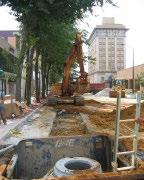

Project Type: Improvements
Start Date: Ongoing
Est. Completion Date: Ongoing
Description: Extension of sewer lines for new services and make needed system improvements. Program is available to those who have petitioned the City Council for sewer services.
Project Title: Water System Improvements
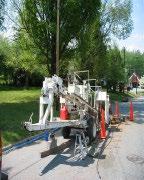

Project Type: Improvements
Start Date: Ongoing
Est. Completion Date: Ongoing
Description: Extension of water lines for new (petition) services and to make needed system improvements. Project is available to those who petitioned the City Council for water services and to make other system improvements.

Project Title: Water Storage Tank Maintenance
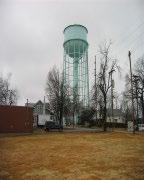
Project Type: Maintenance
Start Date: Ongoing
Est. Completion Date: Ongoing
Description: To inspect, sandblast and paint both the inside and outside of the (5) finished water storage tanks. The proposed project is to inspect, clean, and paint the 5 million gallon and 10 million gallon ground storage tanks, located at the Ward Water Plant, 121 N. Pendleton Street.
Water storage tanks need to be periodically inspected and cleaned to help maintain good water quality in the distribution system, and to help extend the life of the tank. Regular tank inspections can also help to identify small problems that may develop into major problems that can create health related issues, lead to costly repairs or premature tank failure.

Project Title: Eastside – Rebuild of Final Clarifiers 1 and 2
Project Type: Improvements
Start Date: July 1, 2023
Est. Completion Date: September 30, 2024
Description: Clarification is an essential step in a wastewater treatment process to remove suspended solids through gravity settling, providing a clarified liquid effluent. The Final (Secondary) Clarifiers return activated sludge into the treatment process. This is essential for wastewater treatment. The Eastside Final Clarifier #3 was recently taken out of service due to a mechanical failure. An inspection by the manufacturer determined that the drive unit and other major parts of the Clarifier needed to be replaced because of the age of the unit. The manufacturer recommend that the Public Services Department move forward with a rehabilitation plan for the other 3 final clarifiers that were constructed at the same time (early 2000s).

Project Title: Eastside – Filter 1-4 Rebuild
Project Type: Improvements
Start Date: July 1, 2023
Est. Completion Date: June 30, 2024
Description: The Eastside WWTP was expanded in the early 2000’s, the original effluent sand filters (Filters #1-#4) were refurbished with a new air scour system and new media. In late December 2021, the Eastside WWTP staff began to observe diminished effectiveness of backwash cycles and several “dead” areas (no visible air scour) have been identified in multiple filters. The air scour blowers regularly either trip off and/or activate the pressure relief valves, indicating potential excessive back pressure in the air header system.
A consultant was brought to evaluate the condition of the filters and is recommending that filters 1-4 be rebuilt. The filters remove suspended particles from the wastewater which helps rid of environmental pollutants, enhances disinfection, and allows the water to be reused throughout the plant when necessary. The media in the filters is spent which has resulted in a decline in performance, longer filter run times and longer backwash cycles.

Project Title: Eastside Rebuild of Final Clarifier 4
Project Type: Improvements
Start Date: July 1, 2024
Est. Completion Date: June 30, 2025
Description: The Eastside Final Clarifier #3 was recently taken out of service due to a mechanical failure. An inspection by the manufacturer determined that the drive unit and other major parts of the clarifier needed to be replaced because of the age of the unit. The manufacturer recommend that the Public Services Department move forward with a rehabilitation plan for the other 3 final clarifiers that were constructed at the same time (early 2000s).
Clarification is an essential step in a wastewater treatment process to remove suspended solids through gravity settling, providing a clarified liquid effluent. The Final (Secondary) Clarifiers return activated sludge into the treatment process. This is essential for wastewater treatment. If the Final clarifiers underperform, this could put stress on the wastewater process, resulting in a product (effluent) that does not meet compliance limits.
Project Details

Project Title: Water/Sewer Developer Reimbursements
Project Type: Reimbursements
Start Date: Ongoing
Est. Completion Date: Ongoing
Description: Reimbursement for oversized outfalls and sewer mains required for ultimate development. City policy is to reimburse developer for additional size required by sewer master plan but not needed by the individual development.
Project Details

Project Title: Demolition – Ward Water Tank
Project Type: Public Safety
Start Date: July 1, 2023
Est. Completion Date: June 30, 2024
Description: The Ward Water Tank is located at 1702 Bradley Place. The tank was constructed in 1930 and was abandoned upon completion of the Potts Avenue Tank in 2019. The Ward Water Tank needs to be demolished due to safety concerns about the structural condition of the tank.
Project Details

Project Title: Large Water Meter Change Out
Project Type: Improvements
Start Date: July 1, 2011
Est. Completion Date: June 30, 2026
Description: The purpose of this program is to replace and/or retrofit existing large meters and meter boxes. Currently, large water meters have been in service for 20 plus years. Many of these meters have been in place due to how they were installed. Work that will be done in conjunction with meter changeout will include retrofit of meter boxes to allow future testing and easier replacement.

Project Title: Ward Water Treatment Plant Paving
Project Type: Improvements
Start Date: July 1, 2025
Est. Completion Date: June 30, 2026
Description: The parking and driveway areas around the Ward Water Treatment Plant are in poor condition and are in need of repaving.
Project Details

Project Title: Ward Water Treatment Plant Chemical Feed Line Replacement
Project Type: Improvements
Start Date: July 1, 2024
Est. Completion Date: June 30, 2026
Description: The chemical feed lines coming from the bulk tanks to the day tanks and then to the injection points need repair. The chemicals are harsh and have degraded the glue and plastic piping. The current pipes are oversized and need to be reduced and the diffusers at the injection points are old and rusty. The replacement of these pipes will improve the reliability of the plant and may prevent an unauthorized chemical discharge.

Project Title: Ward Water Treatment Plant Polymer Feeder
Project Type: Improvements
Start Date: July 1, 2023
Est. Completion Date: June 30, 2024
Description: The Ward Water Treatment Plant uses 2 dry polymer feeders to feed chemicals to the pulsator, the #1 unit is over 26 years old and needs to be replaced. This unit was installed in 1996 and near the end of its useful life.
Project Details

Project Title: Compliance with Lead and Copper Rule Revisions
Project Type: Improvements
Start Date: July 1, 2022
Est. Completion Date: October 31, 2024
Description: The United States Environmental Protection Agency (EPA) finalized the first major update to the Lead and Copper Rule (LCR) in nearly 30 years. The finalized Lead and Copper Rule Revisions (LCRR) were promulgated in the Federal Register with a focus on switching from a reactive to proactive approach to improve water quality at the customers’ tap.
Project Details

Project Title: Complete Demolition – Kearns Water Plant
Project Type: Public Safety
Start Date: July 1, 2023
Est. Completion Date: December 31, 2025
Description: The Kearns Water Plant is located 1413 E. Martin Luther King Drive. The plant was partially demolished in 2019. The scope of this project will be to fully demolish the remaining portion of the plant due to safety concerns about the vacant building.
Project Details

Project Title: Irbywood-E. Parris Sewer Improvements
Project Type: Water/Sewer Lines
Start Date: September 1, 2023
Est. Completion Date: September 30, 2027
Description: The existing sewer line is undersized. The line is downstream of a local dairy company and the lines become blocked resulting in sewer overflows. The sewer line has become a continual maintenance problem. Temporary repairs have been performed, but the entire line must be replaced. The replacement is required to keep the City in compliance with the State issued permit. An additional backup and overflow could result in untreated wastewater reaching Oak Hollow Lake a source of drinking water for the citizens of High Point.

Project Title: Johnson Street Siphon
Project Type: Water/Sewer Lines
Start Date: July 1, 2023
Est. Completion Date: June 30, 2026
Description: To abandon the existing siphon that currently runs under Johnson Street. The siphon was originally constructed in 1967 during the construction of Johnson Street. The preliminary plan is to abandon the existing siphon and construct a new line that will tie into the Windchase Pump Station and discharge into the sanitary sewer outfall on the east side of Johnson Street.

Project Title: Burton Road (Westchester to City Limits)
Project Type: Obsolete Lines
Start Date: July 1, 2020
Est. Completion Date: December 31, 2024
Description: Obsolete water and sewer lines replacements for Westchester to City Limits. The water lines are cast iron and were constructed in 1962. The sewer line is vitrified clay and was constructed in 1962.
Project Details
Project Title: North Carolina Department of Transportation (NCDOT) – Highway 70 & 29 at South Main

Project Type: Utility Relocation
Start Date: April 1, 2022
Est. Completion Date: December 31, 2025
Description: The North Carolina Department of Transportation (NCDOT) has prepared construction plans for improvements to the interchange at US 29/ US 70/ Business 85 and S. Main St. This project will require substantial water and sewer improvements which will be accomplished in conjunction with this NCDOT project. The City of High Point owns water and sewer utilities that will be impacted by the project’s construction and will be responsible for a portion of the utility construction costs.

Project Title: Gallimore Dairy Road Widening
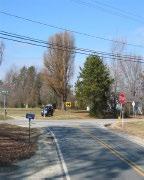
Project Type: Utility Relocate
Start Date: July 1, 2024
Est. Completion Date: September 30, 2027
Description: Widen Gallimore Dairy Road as a multi-lane thoroughfare from NC68 to I-40 including water improvements.

Project Title: Arc Flash Project
Project Type: Improvements
Start Date: July 1, 2020
Est. Completion Date: December 31, 2028
Description: Working from large to smaller facilities to study arc flash and complete required labeling to electrical panels plus make recommendations to meet all safety requirements. (PPE, operating procedures etc.)
Project Details
Project Title: Building Addition – Water/Sewer Facilities Maintenance

Project Type: Building Construction
Start Date: July 1, 2022
Est. Completion Date: December 31, 2024
Description: The existing building that is being being utilized by the Facilities Maintenance Division is undersized. Employees are temporarily officed in a trailer and there is very limited work space, storage area, or meeting/assembly space. A new building will be constructed behind the existing building to provide additional work space, offices, equipment storage, and a training room
Project Details

Project Title: Westside Primary Clarifier 1 Coating Repairs
Project Type: Improvements
Start Date: July 1, 2025
Est. Completion Date: June 30, 2027
Description: This project will address the coating dry film thickness, adhesion tests, and visual coating deficiencies in Westside Primary Clarifier #1.
Project Details

Project Title: Westside Primary Clarifier 2 Coating Repairs
Project Type: Improvements
Start Date: July 1, 2025
Est. Completion Date: June 30, 2027
Description: This project will address the coating dry film thickness, adhesion tests, and visual coating deficiencies in Westside Primary Clarifier #2.
Project Details

Project Title: Westside – Final Clarifier 3 Coating Repairs
Project Type: Improvements
Start Date: July 1, 2023
Est. Completion Date: June 30, 2025
Description: This project will address the coating dry film thickness, adhesion tests, and visual coating deficiencies in Westside Final Clarifier #3.
Project Details
Project Title: NW Sewer System Improvements Future 3

Project Type: Improvements
Start Date: July 1, 2026
Est. Completion Date: September 30, 2028
Description: NW Sewer System Improvements to meet future growth demands. Project Details
Project Title: Kivett Drive – Groometown Road 8’’ Water Main
Project Type: New Lines
Start Date: July 1, 2026
Est. Completion Date: December 31, 2027
Description: This project will install approximately 12,700 linear feet of 8" water main from Hickory Creek Rd East to Groometown Rd. then south to Hickory Creek Rd. This line will be used to transport water from Vickery Chapel Rd to Groometown Rd. This additional capacity will subsidize High Point's current reservoir for future growth.


Project Title: East Fork Lift Station
Project Type: Lift Station
Start Date: July 1, 2025
Est. Completion Date: June 30, 2030
Description: To upgrade the existing East Fork Lift Station to accommodate future development within the northeast section of High Point. This project will allow the City of High Point to expand and serve more citizens in the northeast section of High Point. These improvements will allow for more development in an area that has already seen steadily increasing residential development. Any future development without these improvements could push flows over the permitted limits.
Project Title: Johnson Street/Sandy Ridge Road Widening

Project Type: Utility Relocate
Start Date: July 1, 2024
Est. Completion Date: December 31, 2027
Description: Widening of Johnson Street and Sandy Ridge Road, including sewer improvements.
Project Details

Project Title: Ensley Outfall 2B

Project Type: Obsolete Lines
Start Date: July 1, 2026
Est. Completion Date: June 30, 2028
Description: Replace 4,000 linear feet of 18" sanitary sewer with 36" diameter line. This project will replace deteriorated sanitary sewer pipe and provide for improved sewer service to customers.
Project Title: NW Water System Improvements Phase 3
Project Type: New Lines
Start Date: July 1, 2025
Est. Completion Date: June 30, 2029
Description: NW Water System Improvements through Forsyth County to loop the system together.
Project Details

Project Title: Piedmont Triad Regional Water Authority Water Treatment Plant Upgrade

Project Type: Facility Upgrade
Start Date: July 1, 2027
Est. Completion Date: June 30, 2028
Description: Upgrades at the Piedmont Triad Regional Water Authority Water Treatment Plant. The FY 2028 allocation is to treat potential solvents.
Project Details

Project Title: SCADA System Upgrades (Computer and Server Replacement)
Project Type: Hardware
Start Date: July 1, 2018
Est. Completion Date: June 30, 2025
Description: This project is to replace the SCADA server and all desktop computers from Westside, Eastside and the Ward Plant. It will address the upgrade of the SCADA system software to System Platform. It will replace the current version on Intouch which is no longer supported going forward. The server (SCADA backbone) and existing 30 workstations will be updated.
The budget in FY2024 and FY2025 is the Engineer's probable cost for Westside and to add the Eastside Incineration portion to the prints and specs.

Project Title: Ward Water Treatment Plant Capital Projects
Project Type: Improvements
Start Date: July 1, 2024
Est. Completion Date: December 31, 2025
Description: To address unplanned equipment repairs and replacements needs that occur at the water plant and offsite pumping stations.
Project Details
Project Title: Wastewater Plants and Lift Stations Equipment Replacement

Project Type: Improvements
Start Date: July 1, 2024
Est. Completion Date: Ongoing
Description: To address unplanned equipment repairs / replacement needs that occur at the Wastewater Plants and Lift Stations. The intent is to better plan and budget for the emergency or unscheduled repair of equipment at the wastewater treatment plants and lift stations.
Project Details
Project Title: Water Distribution Master Plan Recommendations

Project Type: Improvements
Start Date: July 1, 2024
Est. Completion Date: Ongoing
Description: To address deficiencies in the water distribution system that were identified by the Water Master Plan that was completed in 2019. The intent is to better plan and budget for the replacement of aging water lines throughout the distribution system.
Project Details
Project Title: RAISE Grant – Water-Sewer Utilities

Project Type: Improvements
Start Date: July 1, 2022
Est. Completion Date: December 31, 2026
Description: In 2021, the City secured a $19.8 million RAISE grant to construct approximately 3.5 miles of shared-use greenway, approximately 1.2 miles of Complete Streets, and two blocks of bicycle boulevards in High Point. Included in this proposal are Water/Sewer utility improvements on Elm Street.
Project Details
Project Title: Rich Fork Outfall 2A & 3 (Phase 1 & 2)
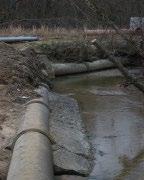

Project Type: Obsolete Lines
Start Date: July 1, 2022
Est. Completion Date: September 30, 2025 (Phase 1)
Description: This project will add to and replace deteriorated sanitary sewer pipe all the way to the Westside Water Plant, to reduce risk of overflow and to provide for improved sewer service to customers. Outfall 2A - Replace 3,400 feet of 15" gravity sewer with 27" line. Outfall 3 - Project replaces 3,000 linear feet of 15" sanitary sewer with 24" diameter line.
Project Title: Triangle Lake Road – Hickory Chapel Road

Project Type: Obsolete Lines
Start Date: July 1, 2021
Est. Completion Date: December 31, 2026
Description: Obsolete water and sewer lines replacements for Triangle Lake and Hickory Chapel Road and various street tie-ins. The water lines are cast iron and were constructed in 1965. The sewer line is vitrified clay and was constructed in 1965.
Project Details
Project Title: City Lake Dam Upgrade
Project Type: Upgrade
Start Date: July 1, 2022
Est. Completion Date: December 31, 2028
Description: This project will rehab and upgrade the City Lake dam to increase spillway capacity to meet current dam safety criteria and state requirements for a design storm event. Project Details


Project Title: Whites Mill Lift Station, Force Main Extension, and Lasalle Siphon
Project Type: Lift Station
Start Date: July 1, 2021
Est. Completion Date: December 31, 2026
Description: Expansion of Whites Mill Lift Station, including force main extension, and Lasalle Siphon. This project will provide the ability to have more capacity and to limit possible sanitary sewer overflows (SSOs) into Oak Hollow Lake.
Project Details
Project Title: Piedmont Triad Regional Water Authority New Transmission Line
Project Type: System Upgrade
Start Date: July 1, 2027
Est. Completion Date: December 31, 2028
Description: To construct a new water transmission line to carry additional treated water from the Piedmont Triad Regional Water Authority. The new line will connect to the existing 30" transmission line at the intersection of Groomtown Road / NC62 and then route along NC62 and I-74 corridor to tie into the Ward Water Treatment Plant. The new line will be designed to carry 19% of 48 MGD expansion.
This project will provide additional treated water for the citizens of High Point - current and future. The project will provide an alternate water source in the event an issue occurs with the High Point Water Plant or water distribution system.


Project Title: Riverdale Pump Station Rebuild
Project Type: Facility Upgrade
Start Date: July 1, 2022
Est. Completion Date: June 30, 2026
Description: The scope of the project will be to replace the pumps, motors, and electrical components that were originally installed in the Riverdale Pump Station in 1994. The project will also address flood proofing of the pump station.
Project Details
Project Title: Upper Boulding Branch Sewer Rehabilitation

Project Type: Water/Sewer Lines
Start Date: July 1, 2022
Est. Completion Date: June 30, 2028
Description: As part of the Sanitary Sewer Master Plan (2019), temporary flow monitoring results showed high infiltration and inflow (I/I) in the Upper Boulding Branch basin. After completion of the hydraulic modelling analysis, it was determined that the Upper Boulding Branch was the highest priority for potential I/I reduction due to downstream capacity constraints. The scope of the project will be to perform rehabilitation on identified portions of the sewer collection system within the Upper Boulding Branch basin.
Project Details

Project Title: Rich Fork Pumpstation Divert – Design & Install
Project Type: New Construction
Start Date: July 1, 2022
Est. Completion Date: December 31, 2027
Description: To design a new sanitary sewer pump station upstream of the Waterview Lift Station that will divert wastewater from the Riverdale Pump and send flow down the Rich Fork sewer outfall to the Westside Wastewater Treatment Plant.
Project Details

Project Title: Eastside Expansion (26 to 32 mgd)
Project Type: Building Expansion
Start Date: July 1, 2025
Est. Completion Date: December 31, 2028
Description: The Eastside Wastewater Treatment Plant was expanded in the early 2000’s and a large portion of the equipment utilized for the wastewater treatment is becoming obsolete and requiring increased maintenance. There is also a need to expand the capacity of the plant due to future development and the potential of increased wastewater flows.


Project Title: Area Outdoor Lighting
Project Type: Infrastructure
Start Date: Ongoing
Est. Completion Date: Ongoing
Description: Installation of new area lighting. Provides rental area lights as requested by customers.
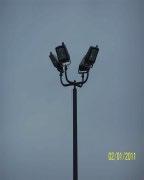

Project Title: Street Lighting
Project Type: Infrastructure
Start Date: Ongoing
Est. Completion Date: Ongoing
Description: Installation of new street lighting. Provides roadway lighting for city streets, improving safety and visibility
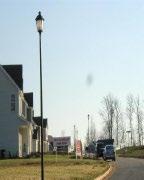

Project Title: Downtown Underground
Project Type: Infrastructure
Start Date: Ongoing
Est. Completion Date: Ongoing
Description: Addition of new circuits downtown and replacement of 30 year old submersible transformers and conversion of existing overhead lines downtown. The project will improve reliability, replace transformers before they fail resulting in outages and provide additional capacity for load growth downtown. The conversion of overhead lines will allow for construction of multi-story buildings without violating safety codes and make property more attractive for investment and development.
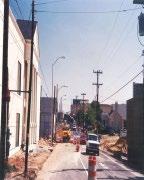

Project Title: Overhead to Underground Conversion
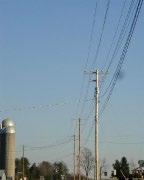
Project Type: Infrastructure
Start Date: Ongoing
Est. Completion Date: Ongoing
Description: Replacement of 30 year old overhead facilities for circuits E4, E7 and B4. This will improve electric system reliability for these circuits. The reconstruction will reduce the possibility of service interruption. These circuits not only serve customers but provide reserve capacity for the hospital, Westchester Drive, North Main Street and the Downtown area. The conversion of overhead lines to underground will promote development and provide capacity for electric system load growth.

Project Title: Medium Voltage (Outdoor) Breaker Replacement
Project Type: Equipment
Start Date: July 1, 2018
Est. Completion Date: June 30, 2024
Description: Replacing medium voltage breakers (15 kV) in older substations (Eastchester, Deep River, Fairfield and others). The units to be replaced are 20 plus years old, starting to malfunction, are causing reliability issues, and are raising safety concerns.

Project Title: Eastchester Transformer 1 Replacement
Project Type: Equipment
Start Date: July 1, 2025
Est. Completion Date: June 30, 2026
Description: Scheduled replacement for transformer at the end of its service life.
Project Details

Project Title: Eastchester Transformer 2 Replacement
Project Type: Equipment
Start Date: July 1, 2021
Est. Completion Date: June 30, 2025
Description: Scheduled replacement for transformer at the end of its service life.
Project Details

Project Title: Fairfield Transformer 1 Replacement
Project Type: Equipment
Start Date: July 1, 2022
Est. Completion Date: June 30, 2024
Description: Scheduled replacement for transformer at the end of its service life.
Project Details

Project Title: Filter T1 Transformer Replacement
Project Type: Equipment
Start Date: July 1, 2025
Est. Completion Date: June 30, 2027
Description: Scheduled replacement for transformer at the end of its service life.
Project Details

Project Title: Underground Subdivision Cable Replacement
Project Type: Infrastructure
Start Date: July 1, 2020
Est. Completion Date: Ongoing
Description: Replacement of underground primary cable that is 40 years old, currently failing, and at the end of its service life.
Project Title: North Carolina Department of Transportation (NCDOT) Eastchester Widening

Project Type: Utility Relocation
Start Date: May 1, 2024
Est. Completion Date: July 1, 2028
Description: NCDOT is widening Eastchester Drive from Hickswood Road to Gallimore Dairy Road. The City of High Point Electric Department has 2 distribution circuits and 1 transmission circuit in that corridor.
Project Title: Substation Security Improvements

Project Type: Facility Upgrade
Start Date: July 1, 2023
Est. Completion Date: June 30, 2024
Description: With future U.S. Department of Energy regulations changing around the topic of substation security, funding is needed to put the department in a position to comply with future regulations to maintain a safe and healthy electric grid.
Project Details

Project Title: Rebuild Buss at Commerce Substation
Project Type: Substation Upgrade
Start Date: July 1, 2026
Est. Completion Date: June 30, 2027
Description: Rework the main buss, which is in need of an upgrade, at the Commerce Substation.
Project Details

Project Title: New Electric Municipal Operations Center (MOC)
Project Type: Facility Addition
Start Date: July 1, 2025
Est. Completion Date: June 30, 2029
Description: Design and construction of a new Municipal Operations Center (MOC) for the Electric Department.
Project Details

Project Title: Hammer to Lexington Avenue Transmission Line
Project Type: Transmission Line
Start Date: July 1, 2024
Est. Completion Date: June 30, 2026
Description: Back-up 100 kV feed for the Hammer Substation, utilizing the existing 36 kV route/right-of-way.
Project Details

Project Title: Automated Meter Reading Initiative
Project Type: Infrastructure
Start Date: July 1, 2018
Est. Completion Date: Ongoing
Description: Implementation of new Automated Metering Infrastructure (AMI). Funding to reflect system change-out. This project will improve metering capabilities and provide better customer service.
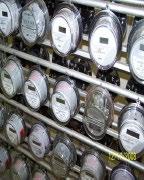

Project Title: New Jackson Lake Transformer
Project Type: Equipment
Start Date: July 1, 2022
Est. Completion Date: June 30, 2024
Description: Purchase and install a new transformer at Jackson Lake Substation. There is currently only one transformer at Jackson Lake Substation. Jackson Lake is on the very corner of the distribution system and the load there is very difficult to feed from other substations. There is not enough capacity on the system to feed this load during peak summer months if the existing transformer were to fail. The second transformer would significantly increase reliability.


Project Title: Hi Tran Bus Fleet Replacement
Project Type: Vehicles
Start Date: Ongoing
Est. Completion Date: Ongoing
Description: Buses are being replaced because of the cost associated with an aging fleet with high mileage. Replacement cost is estimated at $500,000 per bus. Federal/State/City funding of 80%, 10%, 10% split.
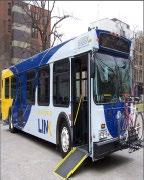
Project Title: Five Points Transfer Hub Property Acquisition and Facility Construction


Project Type: Land Purchase
Start Date: July 1, 2020
Est. Completion Date: December 31, 2026
Description: This project will build a small passenger waiting facility in the Five Points area where two current, one forthcoming route, and one planned route will all intersect and passengers will be able to transfer between the routes.
The convergence of four routes in one area outside of downtown will be a great convenience for transit passengers. Unlike downtown, the routes may not be timed so that the buses will all be there at the exact same time. This will necessitate a waiting area to protect passengers from environmental factors. This building will also provide the operators access to restroom facilities as two of the four routes never go downtown.
Project Title: Operators’ Training Property Acquisition & Facility Construction
Project Type: New Construction
Start Date: July 1, 2023
Est. Completion Date: June 30, 2026
Description: The purchase of approximately 2.3 acres that consist of multiple properties between the northeast property line of the current transit system location and W English Rd. for construction of a training facility.
Currently, transit operators are trained solely in the limited area in the current operations center parking lot and in the right-of-way with other traffic. There is no space to work with operators on specific skills and maneuvers.

Project Title: Transit Maintenance Facility Renovation

Project Type: Building Expansion
Start Date: July 1, 2022
Est. Completion Date: June 30, 2024
Description: The addition of a 50' x 54' space to include a dedicated parts room, general storage space for large items, and two (2) offices. This project would include the rehabilitation and resurfacing the damaged areas of the parking lot as well as add a new parking area to replicate the existing spaces at the end of the building.
The additional 2,700 square feet would provide for the much-needed additional space for the parts for multiple fleets, wheel and tire storage, and other large items.

Project Title: Paratransit Vehicle Replacement
Project Type: Vehicles
Start Date: Ongoing
Est. Completion Date: Ongoing
Description: Vehicles are being replaced because of the cost associated with an aging fleet with high mileage. Newer vehicles are more reliable and have a ramp to allow for accessible entry for passengers in wheelchairs or who have difficulty with stairs.
Project Details

Project Title: Transit Fleet Expansion Vehicles
Project Type: Vehicles
Start Date: July 1, 2022
Est. Completion Date: June 30, 2025
Description: As part of the transit system service expansion, the City is adding three new routes. These connector routes are better served using smaller body-on-chassis vehicles instead of the larger 35 foot buses currently operated. The smaller vehicles will also provide micro-transit in certain parts of the city where fixedroute service may not be efficient.
Project Details

Project Title: Facility Generator
Project Type: Equipment
Start Date: July 1, 2022
Est. Completion Date: June 30, 2025
Description: Purchase generators to supply power to the transit facilities in times of power outages. Over the years the frequency of power outages has increased. When the power goes out, the facilities are completely dark presenting a safety hazard particularly in the maintenance areas where technicians could be working on vehicles or using power tools. In addition many of the services provided are empowered by software that is cloud-based as well as IP phones that require power. The inability to access the internet or receive phone calls impacts customer service. With generators, the transit facilities would maintain power allowing transit operations to continue.


Project Title: Landfill Development – Land Purchase
Project Type: Land Purchase
Start Date: Ongoing
Est. Completion Date: Ongoing
Description: Purchase additional land near or adjacent to current city property designated for future landfill development to provide capacity for refuse disposal for citizens and businesses.
Project Details

Project Title: Kersey Valley Phase I-IV Post Closure Reserve
Project Type: Landfill Development
Start Date: January 20, 2017
Est. Completion Date: Ongoing
Description: This project has been established to fund the ongoing expense associated with post-closure activities associated with the Kersey Valley Landfill. These expenses are estimated by the contracted engineering and geological services consultant and expected to be paid over a 30 year period. The activities include annual expenses for mowing, leachate management, groundwater/surface water monitoring, and revegetation.

Project Title: Kersey Valley Landfill Phase VI Expansion
Project Type: Landfill Development
Start Date: July 1, 2020
Est. Completion Date: June 30, 2029
Description: This project will connect the old landfill site (west of Kersey Valley Rd) to the new landfill site (east of Kersey Valley Rd), thus providing additional years of municipal solid waste disposal serving the city and its customers.
Project Title: Environmental Services Administration Building

Project Type: Building Construction
Start Date: July 1, 2021
Est. Completion Date: December 31, 2027
Description: Construction of an administration building to provide offices, lockers, restrooms, and adequate storage to accommodate the growing needs of the division. The new facility would allow a more adequate administration area while providing sufficient break area and restroom facilities for the front-line staff. Additionally, much needed parking would result from this addition.
Project Details

Project Title: Kersey Valley Landfill Transfer Station
Project Type: Building Construction
Start Date: July 1, 2024
Est. Completion Date: December 31, 2028
Description: Construction of a Transfer Station at the current landfill site. This project will lessen the traffic on the working face of the landfill. This will translate into less congestion with the possibility of accidents. Currently, the Kersey Valley Landfill is projected to be at full capacity in 2035. At that time, waste will have to be transferred to another location. The Transfer Station would be located at the current landfill site. The scale house and convenience center would still be utilized. Operating the station now will allow City of High Point collection vehicles to take their waste to the station versus entering the landfill.

Project Title: Material Recycling Facility (MRF) Maintenance
Project Type: Maintenance
Start Date: Ongoing
Est. Completion Date: Ongoing
Description: MRF facility upgrades will require ongoing maintenance. This funding will be used to assist with keeping the facility and equipment in good working order. Ongoing equipment and building maintenance will assure efficient operations and safe environments on site for the workers, those visiting, and processing of materials.
Project Details
Project Title: Row Turner for Ingleside Composting Facility (ICF)

Project Type: Equipment
Start Date: July 1, 2023
Est. Completion Date: June 30, 2024
Description: This is to purchase a row turner for the Ingleside Compost Facility to improve turning efficiency for the compost as well as reduce the amount of time for compost to be ready for use by the public. Compost is created through thermodynamic means where the product must reach a certain temperature prior to its use. The current method of turning the rows is inefficient and slow, and this piece of equipment will allow the rows to be turned more often, and in a more productive and effective way which will allow the heat to activate the product in a shorter amount time allowing the facility to produce compost faster.
Project Details

Project Title: Tub Grinder and Walking Floor Trailer for Ingleside Composting Facility (ICF)
Project Type: Equipment
Start Date: July 1, 2024
Est. Completion Date: September 30, 2025
Description: This is to purchase a tub grinder and walking floor trailer for the Ingleside Compost Facility to improve the ability to create mulch from the brush and limbs brought into the facility and haul off the site to other locations such as the landfill. The facility currently has two tub grinders, but due to the age and amount of maintenance and down time experienced by these machines a third would allow the facility to operate more efficiently, more effectively, and keep the brush and limbs pile down. The walking trailer will allow for mulch to be moved as needed for more space on the site, by transporting mulch to other city facilities or other storage locations when the facility has excess mulch.

Project Title: Asphalt & Underlayment (Resurfacing) – Ingleside and Kersey Valley Landfill
Project Type: Improvements
Start Date: September 1, 2019
Est. Completion Date: December 31, 2023
Description: Asphalt pads and roadways are in need of major repairs. These facilities are utilized by heavy equipment and trucks daily. These heavier pieces of equipment create more stresses and failure on the asphalt. This project would repair the failing surfaces followed by a two inch asphalt overlay. The asphalt overlay will allow a safe transition into and out of facilities while reducing the potential for damaging vehicles and city machinery/equipment.
Project Details


Project Title: Routine Projects
Project Type: Stormwater
Start Date: Ongoing
Est. Completion Date: Ongoing
Description: To fund routine stormwater improvements authorized by the City Council as the need arises. This method was recommended by the Citizen's Task Force for stormwater improvements. Project will provide improvements to citizens who requested assistance for many years with flooding or erosion problems.
Project Details

Project Title: Hamilton Street (M2) – Central Business District NE Side
Project Type: Stormwater
Start Date: July 1, 2023
Est. Completion Date: December 31, 2026
Description: This project is part of a larger study that was performed in 2004. This work will reduce and mitigate stormwater issues in the Hamilton Street basin.
Project Details

Project Title: Rockford/Rotary/Farris
Project Type: Stormwater
Start Date: July 1, 2023
Est. Completion Date: June 30, 2026
Description: This project is part of a larger study that was performed in 2004. This work will reduce and mitigate stormwater issues in the Rockford/Rotary and Farris Drive basins.
Project Details

Project Title: Country Club/Rockford/Dover/Kensington
Project Type: Stormwater
Start Date: September 1, 2019
Est. Completion Date: December 31, 2025
Description: The proposed project is for flood mitigation and stream channel stabilization. The project begins in the 800 block of Country Club Drive and terminates downstream of Kensington Drive (1200 block). The proposed project will address flooding and stream bank erosion.

Project Title: Restroom Upgrades – Municipal Operations Center (MOC)
Project Type: Improvements
Start Date: July 1, 2023
Est. Completion Date: June 30, 2024
Description: This project is to upgrade the men and women's restrooms at Stormwater Division offices at the Municipal Operations Center (MOC). The bathrooms would be stripped and new flooring, baseboards, sinks and toilets would be installed, along with painting of the walls.
Project Details
Project Title: W. Green Drive Stormwater Infrastructure Improvements

Project Type: Improvements
Start Date: July 1, 2023
Est. Completion Date: December 31, 2026
Description: The project will be an innovative redevelopment of a key city arterial in a distressed part of town that has been facing long-standing issues for decades with decayed infrastructure, flooding, and non-point source watershed pollution. The project proposes to design and install new GSI systems along a 3/4-mile stretch of W. Green Drive that arcs along the southwest side of downtown, near the headwaters of the drainage area into the impaired Richland Creek watershed.
By reducing, redirecting, infiltrating and treating stormwater runoff, the project will be the critical tool to bring stormwater sewers in the neighborhood closer to current standards, reduce flooding in city streets, and target non-point stream impairment at its most critical location, the headwaters.

Project Title: Ray Street (R1, 2, 3a, b, c, d)/Hospital
Project Type: Stormwater
Start Date: July 1, 2017
Est. Completion Date: June 30, 2027
Description: This project is part of a larger study that was performed in 2004. This work will reduce and mitigate stormwater issues in the Ray Street basin.
Project Details

Project Title: Jacobs Place (JP7)
Project Type: Stormwater
Start Date: September 1, 2020
Est. Completion Date: December 31, 2025
Description: The existing drainage system is undersized. The proposed drainage improvements will address frequent flooding that occurs along Wrenn Street, Main Street, and Russell Avenue. Surrounding buildings along Main Street and Wrenn Street flood. The proposed improvements will address flooding - Wrenn Street drainage system improvements.
Project Details

-A-
Account Number - the accounting designation for revenue and expenditure line items.
Accrual Accounting - a basis of accounting in which revenues and expenses are recorded at the time they are incurred, instead of when cash is actually received or disbursed.
Activity - a level of budgeting, which identifies a particular program or service within a department. Contained within an activity budget may be one or more sub-activity budgets.
Adopted Budget - the official expenditure plan adopted by the City Council for a fiscal year.
Ad Valorem Taxes - commonly known as property taxes. For most governments, it is the single greatest revenue source. Taxes are levied at the stated tax rate for both real and personal property according to the valuation.
Appropriated Fund Balance - revenue appropriated from existing fund balance to help fund expenditures in a given fiscal year.
Appropriation - an authorization by the governing board to make expenditures and incur obligations for specific purposes.
Assessed Valuation - the total value established for real property and used as the basis for levying property taxes.
-B-
Balanced Budget - the situation that exists when total anticipated revenues are equal to total planned expenditures. The state of North Carolina requires a balanced budget.

Benchmarking - the identification of best-in-class performers; the comparison of local performance outputs and results with those of top performers; the analysis of practices that account for any performance gaps; and the development and implementation of strategies to adjust the gap in one’s favor.
Benefits - mandated employee benefits and other programs such as health insurance, which benefit the employee and their family.
Bond - a written promise to pay a specified sum of money at a specified date in the future together with periodic interest at a specific rate.
Bond Anticipation Note - short-term, interest-bearing notes issued by the City in anticipation of bonds to be issued at a later date. The notes are retired from proceeds of the bond issue to which they are related.
Bond Referendum - an election in which voters pass or defeat a proposal by the City government to issue debt in the form of interest-bearing notes.
Budget - a comprehensive financial plan of operation for a specified period of time containing an estimate of proposed expenditures and the means of financing them. In the state of North Carolina it is mandated that a balanced budget be produced, i.e. revenue equals expense.

Budget Calendar - the schedule for completion of the various tasks involved in the preparation, submission, and adoption of the fiscal year annual operating budget for the City.
Budget Message - a formal letter of transmittal contained in the proposed budget document prepared by the City Manager and addressed to the governing board which contains the City Manager's views and recommendations on the City's operation for the coming fiscal year.
Budget Ordinance - the legal document approved by the governing board that establishes the spending authority for the City.
Capital Asset - facilities and equipment that are tangible assets having a significant value ($500 or greater) and a useful life of three year or more.
Capital Improvement Program - a plan for capital expenditures to be incurred each year over a fixed period of years to meet capital needs arising from long-term work programs. Capital expenditures of significant amounts of money involving major construction and acquisition are usually included in the capital improvement program (CIP).
Capital Outlay - budgeted expenditures of at least $500 for tangible items with a useful life of at least three year.
Capital Project Fund - a fund used to account for expenditures for major construction and acquisition projects that are not accounted for in other funds and are anticipated to be completed in one year.
Capital Project Ordinance - authorizes a major capital expenditure and continues in effect for the life of the project. It is characteristic that the types of projects covered by a capital project ordinance span several years due to the scope of work being performed. The ordinance specifies the funding and line-item expenditures for the project.
Catalyst Project – a downtown development project identified in 2016 to produce 500 private sector jobs, 15-20 new restaurants and shops, 250 additional residential housing units and a centralized gathering space.
Capital Reserve Fund - a fund established for the purpose of receiving transfers of moneys from other funds (usually enterprise funds) in order to build fund balance for a specific future outlay of capital.
Cash Equivalents - highly liquid investments with maturities of three months or less when purchased to be cash or cash equivalents, or demand deposits.
Central Services Fund - a fund used to account for goods and services provided by one department to other departments on a cost reimbursement basis, such as print shop services or warehousing.
Community Development Block Grant Fund - used to account for revenues and expenses derived from the Community Development Block Grant entitlements to the City.
Contingency - an appropriation by fund used at the City Council's discretion to provide budget for unanticipated expenditures.
Core City Plan - A plan for guiding the development, redevelopment and revitalization of neighborhoods as outlined in the Core City Plan developed in 2006 and adopted by the City Council on February 8, 2007. The public-private partnership Plan’s purpose is designed to define and improve the physical, economic and social fabric of the downtown and surrounding neighborhood, institutional, commercial, and industrial areas. The City contributes funding to the plan annually. The name was changed from Core City to “The City Project” in 2011.
-D-
Debt Service - Moneys required for payment of principal and interest and other associated expenses on outstanding bond debt.
Deferred Revenues - Revenues submitted to the City before the eligibility requirements are recorded and reported.

Department - a major operating budget area of the City, which includes overall management for an activity or group of related activities with possibly one or more sub-activities.
-E-
Effectiveness Measures - the level of satisfaction of the services being delivered or the extent to which pre-determined goals and objectives have been reached. Effectiveness indicators more accurately measure the quality-of-service output to know whether a program or service is accomplishing what was intended.
Efficiency Measures - the units of service produced (output) per amount of resources expended (input). Indicates how well a government is performing the things it is doing. This measure is a good indicator of how reasonable service costs are - the ratio of quantity of service provided to the cost, in dollars or labor.
ElectriCities - a not-for-profit government service organization representing cities, towns and universities that own electric distribution systems. Today, ElectriCities represents more than 90 members in North Carolina, South Carolina, and Virginia.

Encumbrance - an obligation in the form of a purchase order or a contract, which is chargeable to an appropriation and for which a part of the appropriation is reserved. It becomes an expenditure when paid.
Enterprise Fund - a fund established to account for the operation of facilities and services that are entirely or predominantly financed through user charges. The City's enterprise funds are Water, Sewer, Electric, Mass Transit, Parking, Solid Waste Facilities, and Stormwater.
Environmental Services Pick-up Fee (Availability Fee) – This is a revenue source for the Solid Waste Fund from the pickup of refuse from residential, commercial and industrial customers.
Equities - Assets less liabilities of a fund.
ERP – Enterprise Resource Planning - integrated financial and human resources solutions that help to streamline and improve public-sector business processes.
ERU – Equivalent Residential Units - a calculated methodology to determine the basis for determining the monthly stormwater utility fee to be charged to the customer. The ERU per customer is determined by dividing the total of square footage of impervious surface area on the customer’s property by the square footage of one ERU (2,588). The result is multiplied by the dollar amount established by City Council
Expenditure - the amount paid for goods delivered and services rendered.
-F-
Fiduciary Fund - a fund used to account for assets held by the City in a trustee or agent capacity for other agencies or organizations.
Fiscal Year - a twelve-month period of time to which the annual budget applies. The City of High Point's fiscal year is from July 1 thru June 30.

Fixed Asset - tangible property owned by the City having a monetary value of $500 or greater and a useful life of one year or more.
Fringe Benefits - funds budgeted for the City’s contribution for employee benefits including retirement, health insurance, social security, and life insurance.
Fund - an independent accounting entity with a self-balancing set of accounts.
Fund Balance - the excess of a fund's assets and revenues over its liabilities, reserves, and expenditures at the close of the fiscal year.
Full Accrual - a method used in proprietary funds for recording the expenditure of funds in which revenues are recorded when they are earned and expenses are recorded when a liability is incurred.
Full-Time Positions - authorized positions with the exception of law enforcement and fire employees budgeted at 2080 hours per year
-G-
GAAP - (Generally Accepted Accounting Principles) accounting principles that are commonly used in preparing financial statements and generally accepted by the readers of those statements. The source of GAAP for state and local governments is the Governmental Accounting Standards Board.
General Capital Projects Fund - used to account for major capital expenditures (acquisition and construction) other than those financed by enterprise funds. These projects usually require more than one year for completion.
General Fund - used to account for the ordinary operations of the City, which are financed through taxes, other general revenues, and contributions, transfers, and reimbursements from other funds. Unless there is a legal accounting requirement, all activities are accounted for in the General Fund.
General Obligation Bonds - debt issued by the City that is backed by its taxing authority.
Goal - a broad statement of purpose or intent to achieve a desired state of affairs. A goal describes a desired effect on the community.
Governmental Funds –are segregations of financial resources. Expendable assets are assigned to the various governmental funds and current liabilities are assigned to the fund from which they are to be paid. The differences between governmental fund assets and liabilities, the fund equity is referred to as “Fund Balance.”
-I-
Infrastructure - the base or framework of a community that is necessary to support the orderly function of government and service delivery to communities. Examples include water and sewer (improvements to lines, treatment plants), streets, and stormwater project to name a few.

Input Measures - the amount of resources expended or consumed in the delivery of services.
Interest on Investments - revenue earned from investment of City funds with a third party.
Inter-fund Transfers - transfers of money between accounting funds as authorized by the City Council.
Intergovernmental Revenue - revenue received by the City from federal, state, and county agencies.
Intragovernmental Revenue - revenues generated by a City department for services provided to other City departments.
-L-
Lease-Purchase Agreement - a method of financing the purchase of a fixed asset, which allows the City to spread the cost over a specified period of time.
LED Lighting – (light-emitting diode) LEDs are more efficient, because LEDs produce more lumens per watt than other alternatives, and also because they can be tuned to the specific wavelengths. They can be used for traffic signals, light bulbs, lanterns, and streetlights to name a few.
LEED Certification – (Leadership in Energy and Environmental Design) provides independent, third-party verification that a building project is environmentally responsible, profitable and a healthy place to live. Green Building Rating System, developed by the U.S. Green Building Council (USGBC), provides a suite of standards for environmentally sustainable construction.
Licenses & Permits - revenue received by the City from individuals and corporations for the purpose of conducting business or performing certain activities.
Line Item - a unit of budgeted expense used to classify expenditures by item or category. A line item establishes the permissible level of expenditure for an item.
-M-
Miracle League - A non-profit organization in High Point called “The Miracle League of High Point” for the purposes of providing opportunities for children with disabilities to play Miracle League baseball on a specially designed field. The High Point field was funded by private donations, with the land and grading for the site provided by the City of High Point.
Mission Statement - a clear statement of the purpose and goal(s) toward which a department directs their efforts. (The reason the department exists.)
Modified Accrual - a method for recording the receipt and expenditure of funds in which revenues are recorded when they become measurable and available and expenditures are recorded when the liability is incurred.
-N-
Non-Departmental - expenditures for purposes that are not related to a specific department.
-O-
Objective - a specific target for achievement, which represents an interim step, or progress toward a goal within a specified time span and which are measurable.

Ombudsman - A government official who investigates citizens' complaints against the government or its functionaries.
Operating Budget - the City’s financial plan for its operation for the fiscal year that outlines the proposed expenditures and revenue estimates to finance the expenditures.
Operating Expenses - funds allocated for the day-to-day operation of the City’s services. These expenses exclude capital outlay.
Ordinance - a legislative enactment by the City Council. It has the full force of law within the City if it is not in conflict with any higher law.

Outcome Measures - the social, economic or cultural conditions that the program seeks to influence and the actual results/impacts produced by the program or service.
Output/Workload/Activity Measures - the quantity of services provided. -P-
Part-Time Positions - authorized positions with various work schedules of 1,750 hours per year or less.
Pay Go Funding - a method in which annual revenue appropriations are used for funding capital projects as opposed to the issuance of long-term debt. General Fund projects are usually funded by an appropriation from the General Fund consisting of primarily property tax revenues. Capital projects in proprietary funds are funded by the respective revenues in these funds.
Performance Measure - the quantity or level of service provided. Indicator or criterion against which users can assess the successful achievement of a service or program.
Performance Measurement - the systematic method in which city departments develop and monitor objectives that assess the outcome and effectiveness of a delivered service or program. Provides government a way of determining whether it is providing a quality service at a reasonable price. Must not be seen as a “score-keeping system”, but as a decision-making tool.
Performance Objectives - the means used to accomplish a mission. Clear targets for specific action. More detailed than the mission statement; have shorter time frames; states quantity when possible; measurable over time and reasonably achievable.
Personal Property - includes tangible property not permanently affixed to real property. Examples include vehicles, boats, trailers, and equipment.
Personnel Services - salaries, wages, and fringe benefits.
Property Tax - an annual tax levied by the City Council on the value of real property to fund General Fund expenditures. The amount of revenue derived from the tax is calculated by taking the tax value of the real property, dividing it by 100, multiplying it times the tax rate, and then times the collection percent.
Proprietary Funds – funds that are used to account for a government’s on-going organizations which are similar to those found in private businesses or private sector. These funds have their own set of revenue and expense accounts. Measurement focus is income, financial position and changes in financial position.
-R-
Real Property - land, buildings, and items permanently affixed to land or buildings.
Retained Earnings - an equity account reflecting the accumulated earnings of an enterprise fund or internal service fund.
Revaluation – defined as the re-appraisal or re-assessment of value. In the City of High Point budget document, “revaluations” describe the process county tax collectors use to update the values of taxable real property within the city limits as well as the county.
Revenue - income received by the City from various sources used to finance its operations.
Revenue Bonds - bonds whose principal and interest are payable exclusively from the earnings of an enterprise fund. Revenue bonds are payable from identified sources of revenue and do not permit the bondholders to compel taxation or legislative appropriation of funds not pledged for payment of debt service.
Revenue Neutral Property Tax Rate – defined by North Carolina General Statues as the rate that is estimated to produce revenue for the next fiscal year to the revenue that would have been produced for the next fiscal year by the current property tax rate if no re-appraisal had occurred.

-S-
Solid Waste User Fee – The five dollar per month fee that customers pay for access of refuse to the landfill. This fee does not cover the actual pick-up of refuse.
Special Appropriations - accounts used for outside agencies’ funding, prior year workers’ compensation and unemployment claims, and for expenditures not routinely appropriated in operating budgets.
Special Grants Fund - a fund established to account for revenues received from outside agencies or groups designated for expenditure on particular programs and projects. These programs and projects are usually non-recurring in nature and of short duration. Revenues received are from federal, state, and local sources.
Sub-Activity - a level of budgeting, which identifies a specific area of work necessary for performing a budgeted activity.
-T-
Tax Base - the total assessed valuation of real property within the city limits.
Tax Levy - the total amount of revenue to be raised from the property tax levied by the City Council in the annual budget ordinance.
Tax Rate - the amount of tax per $100 of assessed valuation levied by the City Council.
TIP - Transportation Improvement Program for the N.C. State Department of Transportation.

Treasury Subsidies – Subsidies from the US Treasury will rebate a portion of the interest paid on taxable bonds as authorized by the American Recovery and Reinvestment Act of 2009 (ARRA).
-U-
User Charges - the payment of a fee for receipt of a service provided by the City.
-V-
Valuation - the tax value of real property as determined by the Guilford County tax assessors every eight years. The property valuation is multiplied by the tax rate per $100 of valuation to arrive at the tax bill for a particular piece of taxable property.
- W -
Workforce Program - is a separate but supported strategic plan to implement recommended development strategies to assist the community’s workforce as they compete for high-skilled jobs in the region. The idea to develop communication and training materials to support community education by a combination of government, business, education, and community leaders working together to assist community residents’ short-term actions to improve workforce education, training, and preparedness.
Budgets, both revenue and expense are identified by a six-digit accounting unit number. The first three digits identify the fund for the accounting unit. Each division within a department is assigned an accounting unit.






ACFR Annual Comprehensive Financial Report is a set of U.S. government financial statements comprising the financial report of a government entity that complies with the accounting requirements promulgated by the Governmental Accounting Standards board.
APPA
ARPA
American Public Power is a service organization for more than 2,000 community-owned electric utilities. American Rescue Plan Act
BABS Build America Bonds are bonds receive a 35% rebate on each interest payment.
BAN Bond Anticipation Notes are smaller short-term bonds that are issued by corporations and governments wishing to generate funds for upcoming projects
BET Benefits Education Team is an employee-led group that studies and offers suggestions to guide our employee group health and related insurance program through difficult and ever changing and challenging times. The BET has concentrated on employee and retiree wellness program plan cost-containment, and cost-sharing strategies directed to limit future health insurance rate increases and shift costs to those actually using the benefits.
CAP or CPO Capital Project Ordinance is an ordinance that can be multi-year covering the unique needs of capital project budgeting.
CD Community Development is an office with the City of High Point.
CDBG Community Development Block Grant funds are specific funding from the Department of Housing and Urban Development that allow for implementation of a wide range of projects and program dealing with neighborhood improvements and city services.
CHP or COHP City of High Point.
CIP Capital Improvement Plan is a short-range plan which identifies capital projects and equipment purchases, provides a planning schedule, and identifies options for financing the plan.
CVB Convention and Visitors Bureau non-profit organization that recruits visitors, conventions etc. to the city.
(NC)DENR North Carolina Department of Environment and Natural Resources is the lead stewardship agency for the preservation and protection of North Carolina's natural resources.

(NC)DOT North Carolina Department of Transportation is the North Carolina agency which oversees transportation within the state.
(US)DOL United States Department of Labor is charged with preparing the American workforce for new and better jobs and ensuring the adequacy of American's workplaces.
(US)DOT United States Department of Transportation is a federal agency that oversees federal highway, air, railroad, and maritime functions.
DWI Driving While Impaired is a driving offense of driving drunk or drugged.
(HP)EDC High Point Economic Development Corporation is a public-private organization which works to retain existing business and industry in High Point, to assist local companies in expanding and to attract new business to High Point.

EEOC Equal Employment Opportunity Commission is the federal agency that provides oversight and coordination of all federal equal employment opportunity regulations, practices, and policies.
EMT Emergency Medical Technician Training certification for public safety personnel.
ERP Enterprise Resource Planning (referencetoglossaryfordefinition) .
FEMA Federal Emergency Management Act Agency that assists in federal disasters
FT Full-time classification of employment
FTE Full-Time Equivalent refers to the number of employees directly involved in providing the service as approved in the annual operating budget. The number can include full- and part-time workers. For High Point, an FTE equates to 2,080 hours of work per year.
FY Fiscal Year is the budget year from July 1 of one year to June 30th of the next year.
GASB Governmental Accounting Standards Board is the source of generally accepted accounting principles used by state and local governments.
GED General Educational Development tests are a group of five subject tests which certify that the test taker has high school level academic skills.
GFOA Government Finance Officers Association is a professional association of approximately 17,500 state, provincial and local government finance officers in the United States and Canada.
GIS Geographic Information System is system designed to capture, store, analyze, manage, and present all types of geographic data.
GO General Obligation are bonds which are sold by governments to support capital projects.
GTCC Guilford Technical Community College is a two-year accredited community college. GTCC offers certificates, one-year and two-year career-related programs, a two-year college transfer program, personal enrichment courses, a variety of adult literacy opportunities and training for business and industry. It opened in 1958 and was created as a training center designed to prepare people for jobs created by the rapid manufacturing growth of the early 1950s. Its purpose has remained basically unchanged: to give the people of Guilford County the training and education they need to compete in the job market.
HP High Point.
HPFD High Point Fire Department.
HPPD High Point Police Department
HQ Headquarters main administrative location for a corporation.
HR Human Resources is the department within the City that oversees employees.
IIMC International Association of Municipal Clerks is a professional nonprofit association that promotes continuing education and certification through university and college-based institutes and providing networking solutions, services, and benefits to its members worldwide.

IT Information Technology is the department that focuses on processing, storage, and dissemination of vocal, pictorial textual and numerical information by computing and telecommunications.
KWH Kilowatt hour is a unit of energy equal to 1,000-watt hours.
LEED Leadership in Energy and Environmental Design is a certification that provides independent, third-party verification that a building project is environmentally responsible, profitable and a healthy place to live. Green Building Rating System, developed by the U.S. Green Building Council (USGBC), provides a suite of standards for environmentally sustainable construction.
LED LIGHTING
Light emitting diode lighting is more efficient because LEDs produce more lumens per watt than other alternatives, and also because they can be turned to the specific wavelengths. They can be used for traffic signals, light bulbs, lanterns, and streetlights to name a few.
LMS Learning Management System is the city's online training system for employees.
MGD Million gallons per day is a unit of flow measurement.
MLK Martin Luther King, Jr. was an American clergyman, activist, and prominent leader in the African American civil rights movement.
MMC Master Municipal Clerk is a professional designation granted by IIMC that is an advanced continuing education program that prepares participants to perform complex municipal duties.
MOC Maintenance Operation Center facilities for the City of High Point.
MRF Material Recovery Facility is the facility in the City where recyclable materials are taken to be sorted and sold.
MSA Metropolitan Statistical Area is a geographical region with a relatively high population density at its core and close economic ties throughout the area.
MWh Megawatt hour is a unit of energy equal to 1,000 kilowatt hours.
NGO Non-governmental organization is a legally constituted organization created by natural or legal persons that operates independently from any government.
NFPA National Fire Protection Agency provides support, education, and publications to fire personnel throughout the United States.
NPDES National Pollutant Discharge Elimination System is a permit program, authorized by the Clean Water Act, which controls water pollution by regulating point sources that discharge pollutants into U.S. waters.
OSHA Office of Safety and Health Administration is the main federal agency charged with the enforcement of safety and health legislation.
PM Preventive Maintenance is work done on fleet vehicles to prevent unexpected repairs.
PT Part-time classification of employment.
PTRWA Piedmont Triad Regional Water Authority is an authority that was formed in 1986 by the cities of High Point, Archdale, Greensboro, and Randleman for the purpose of developing plans for the Randleman Lake water supply.
ROW Right of Way
RZEDBS Recovery Zone Economic Development Bonds are a special subset of these authorized bonds and issued only in the Water and Sewer Fund receive a 45% rebate on each interest payment.

S&P Standard and Poor’s--bond rating agency
SCBA Self-contained Breathing Apparatus firefighters use to breathe when fighting fires.
TIA Traffic Import Analysis is the term to describe studies often required by governments to provide statistical information to determine the need for street and highway improvements to serve a public street network.
TIP Transportation Improvement Program - a multi-year schedule for all transportation projects.
TRC Technical Review Committee is a City of High Point committee administered by the Planning and Development Department for the purpose of providing City departments and private agencies and developers an organized review of development plans as well as to provide internal information to City departments in order to coordinate efforts and services required by any new development.
WRC Watershed Review Committee is an internal oversight committee consisting of representatives from three City departments for the purpose of reviewing watershed plans submitted through the Technical Review Committee. The committee ensures plans are following the City Ordinance for stormwater runoff, retention/detention.